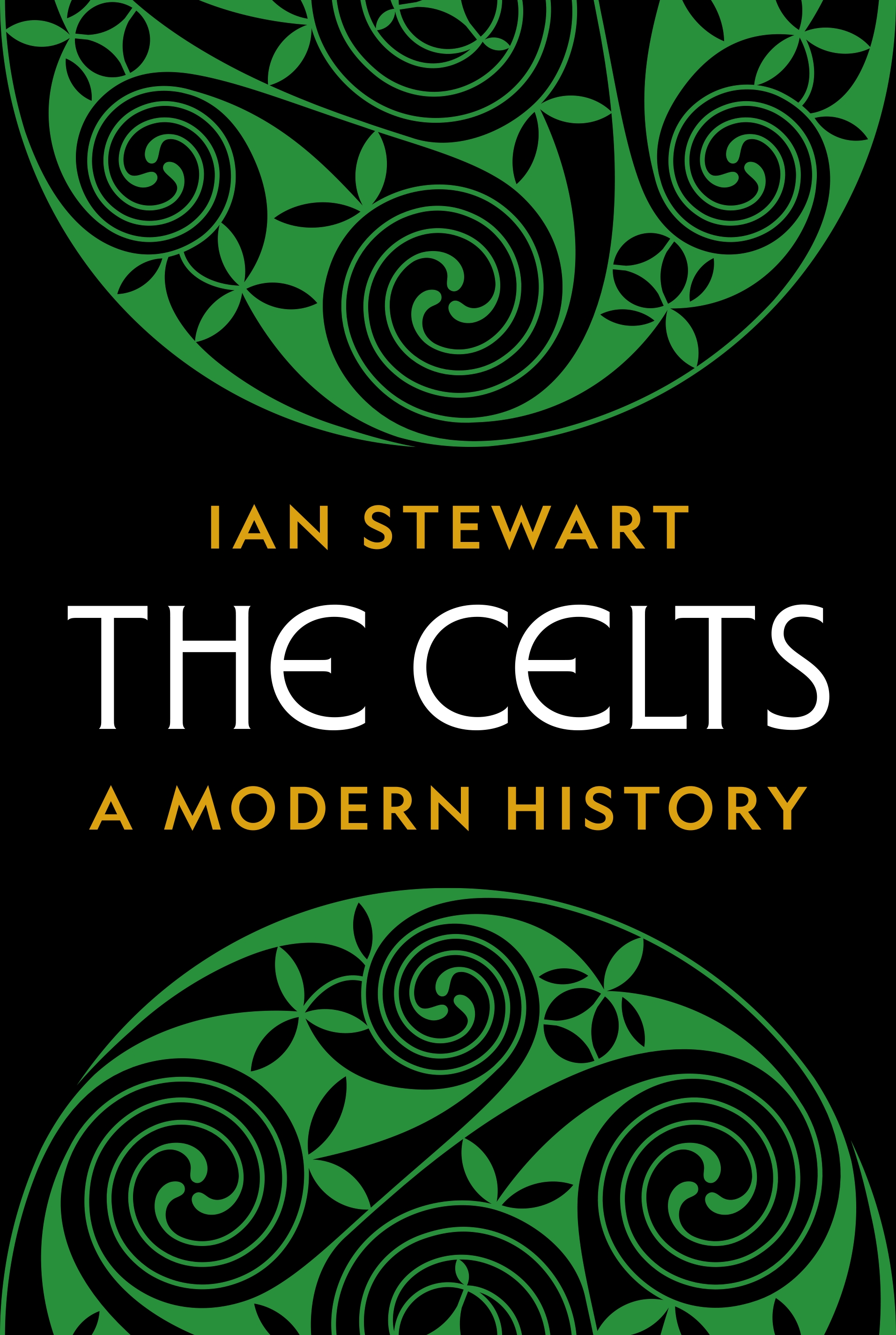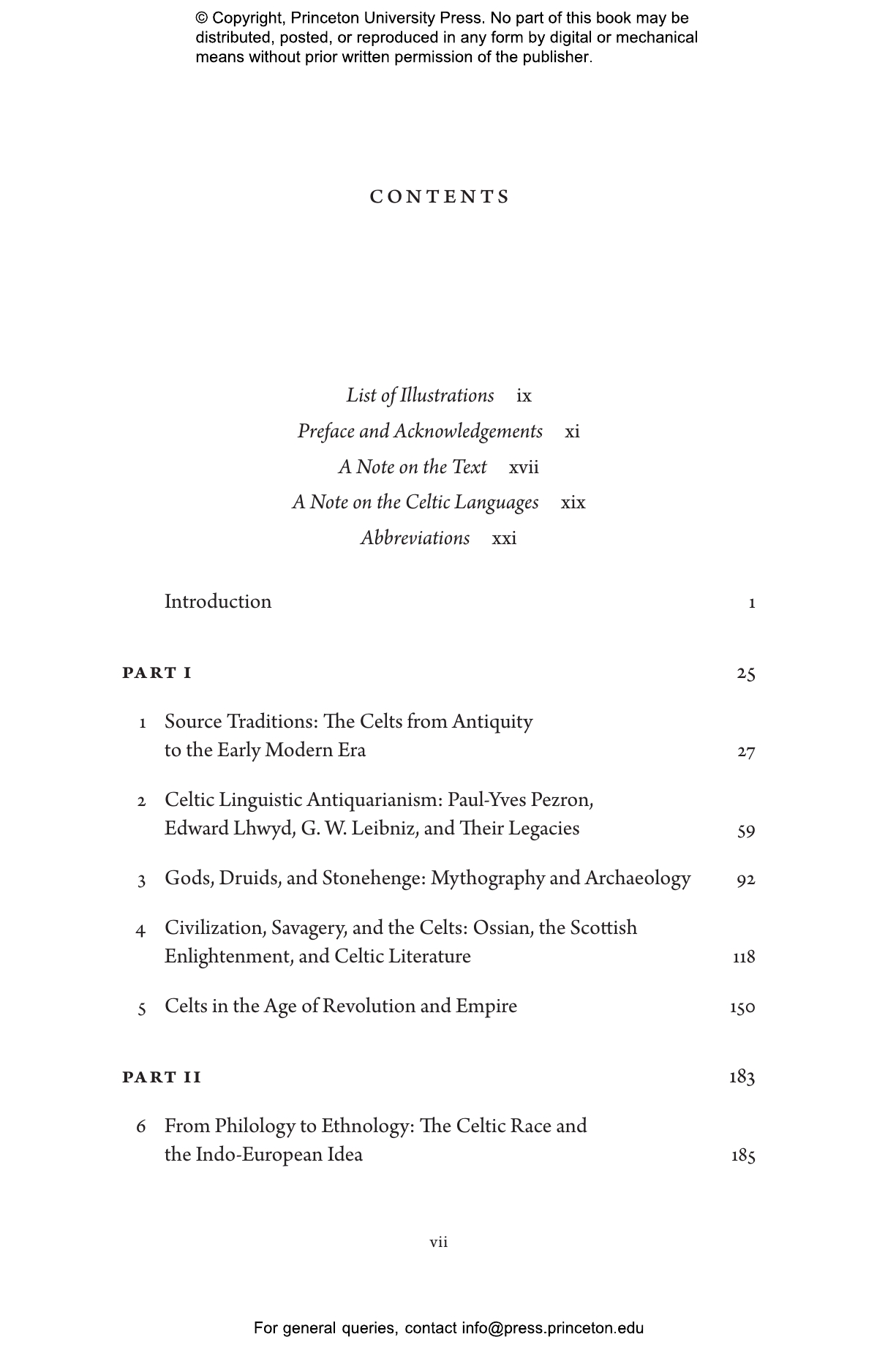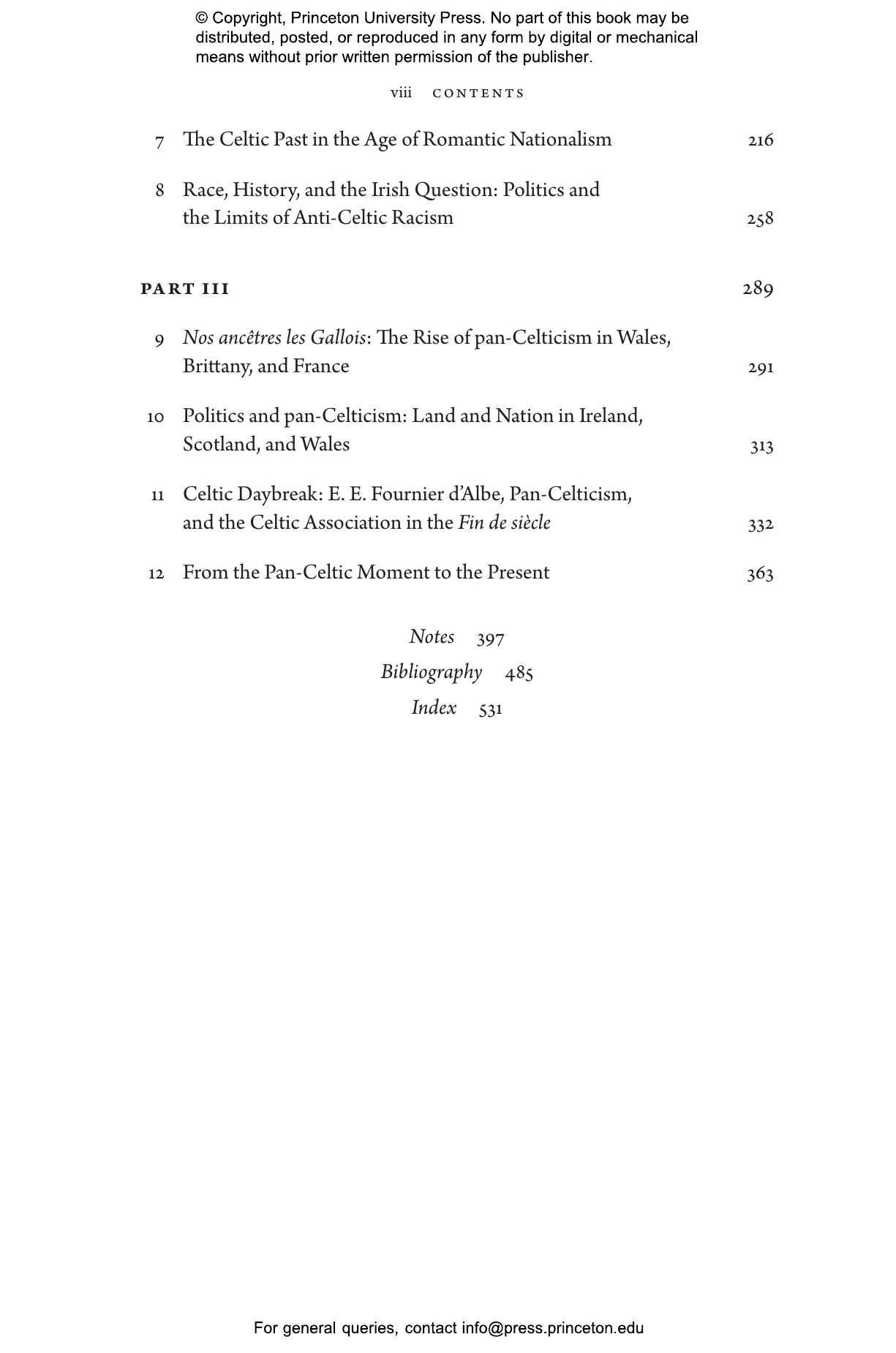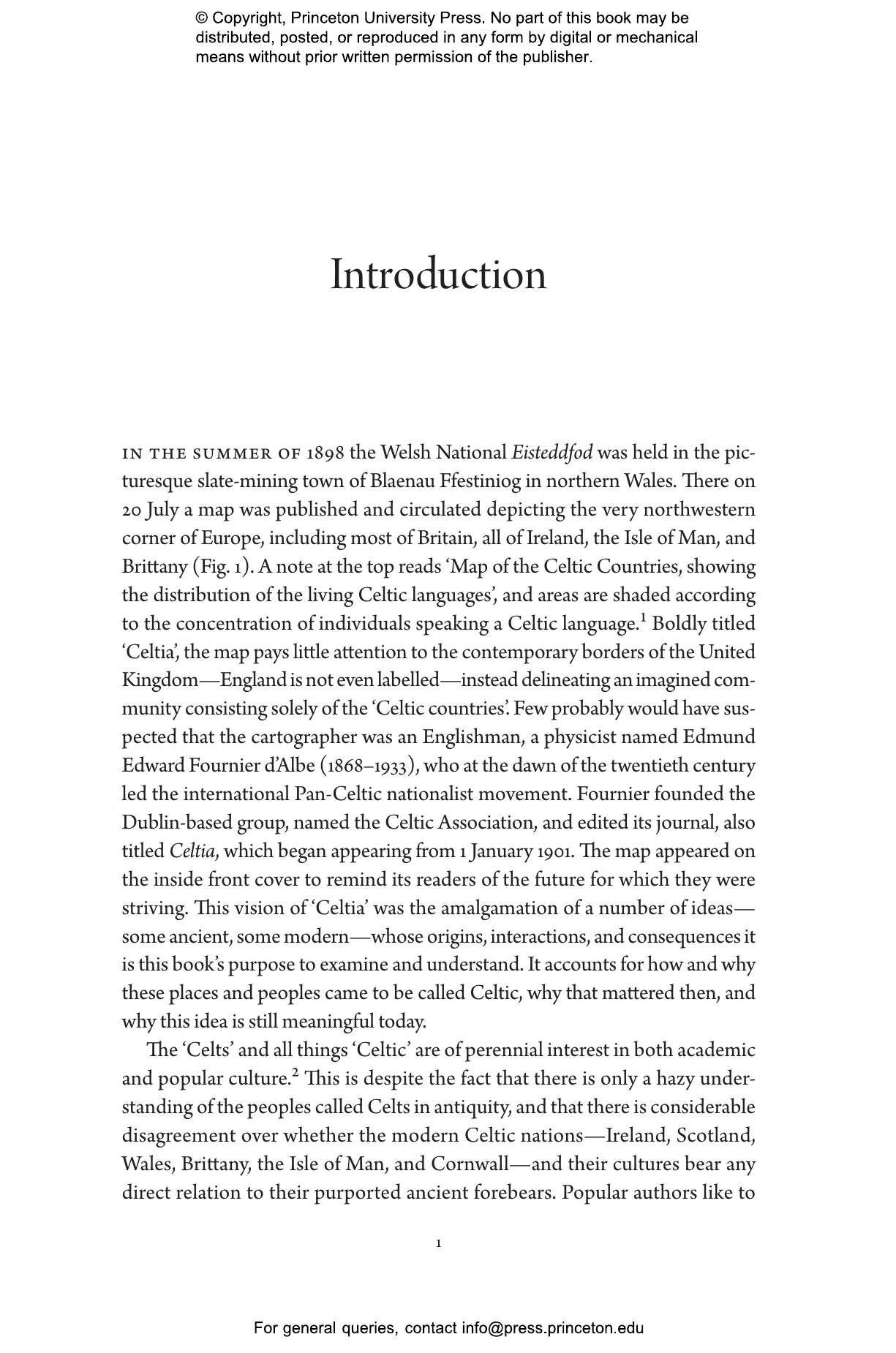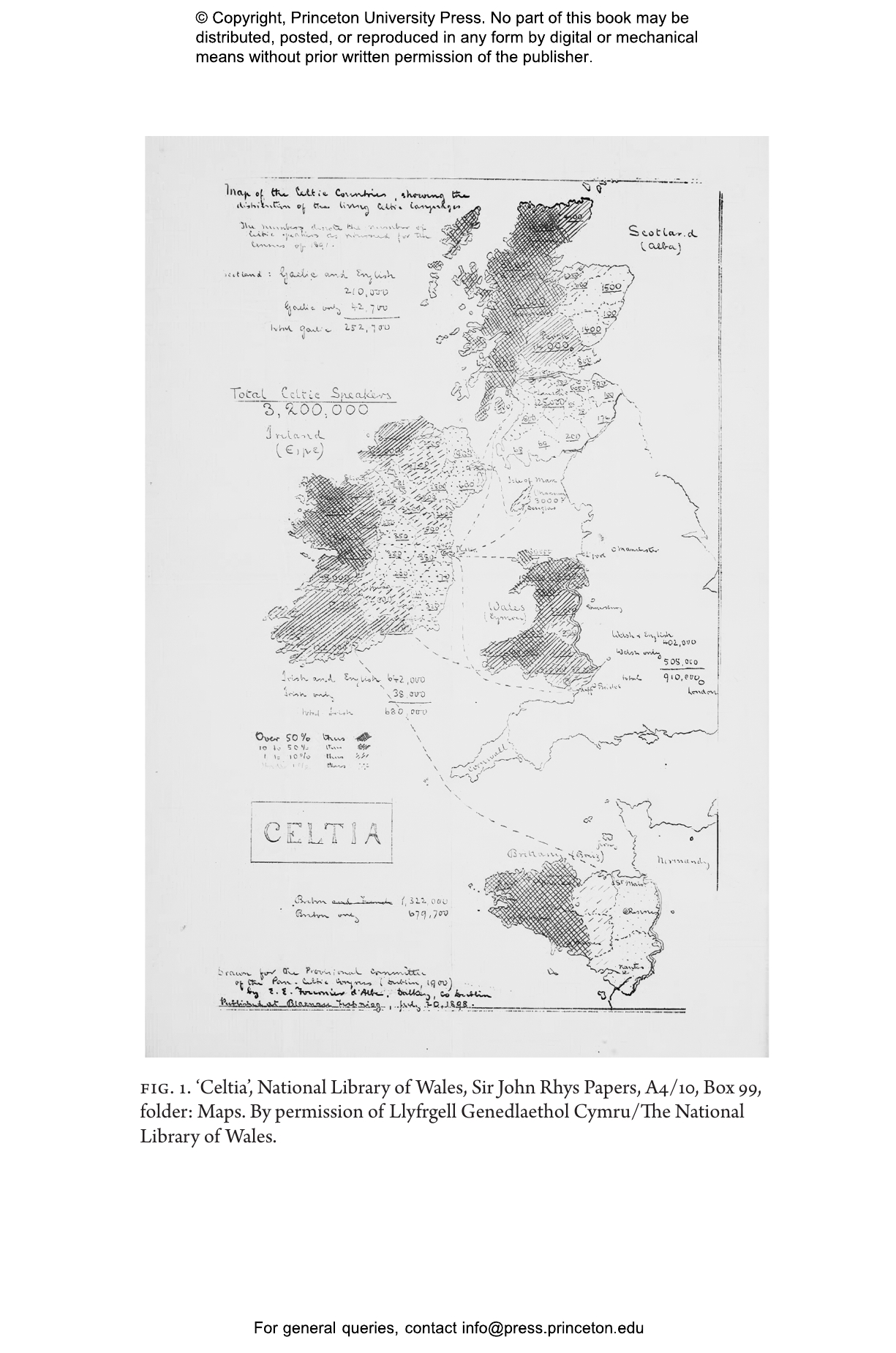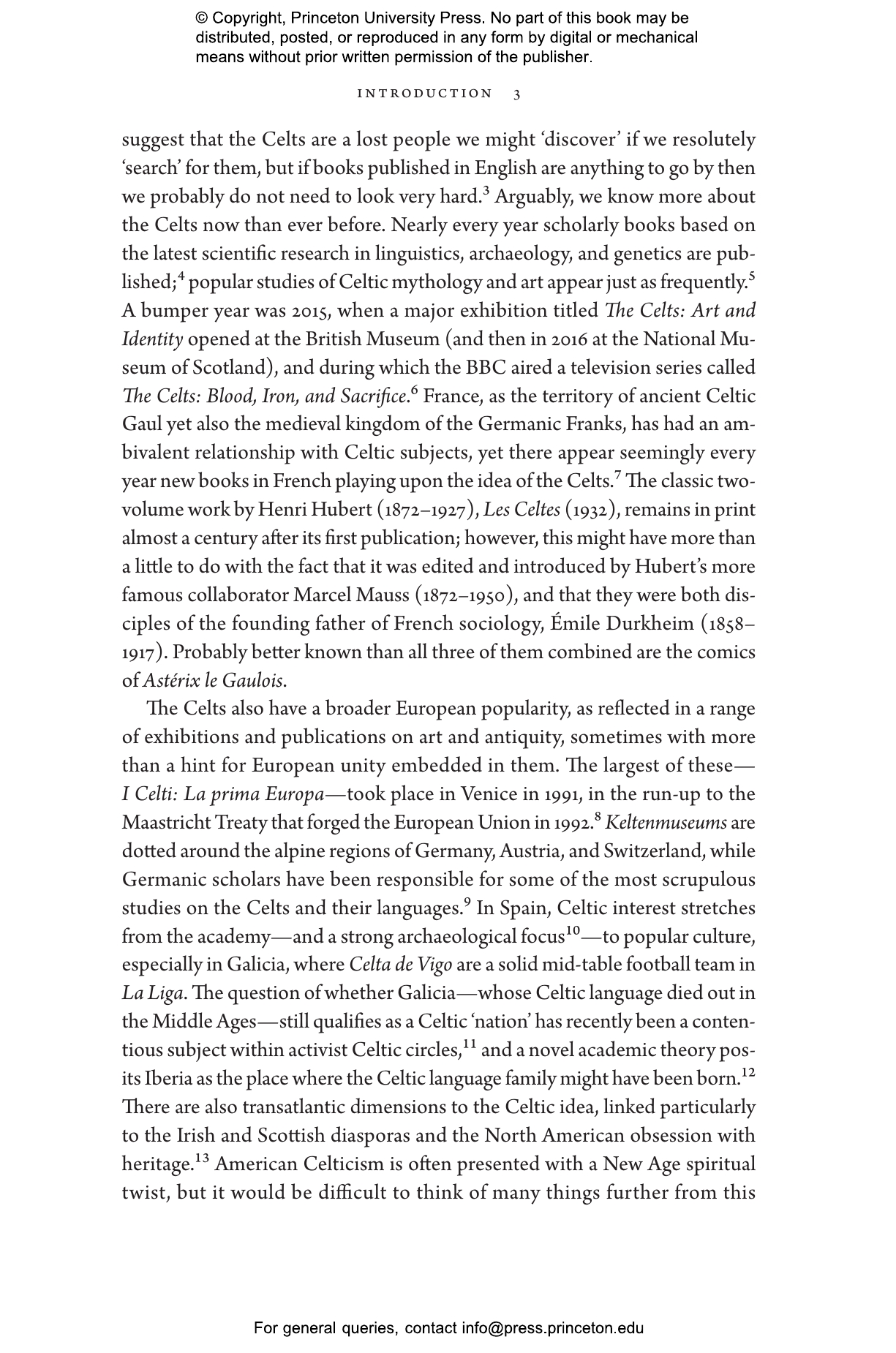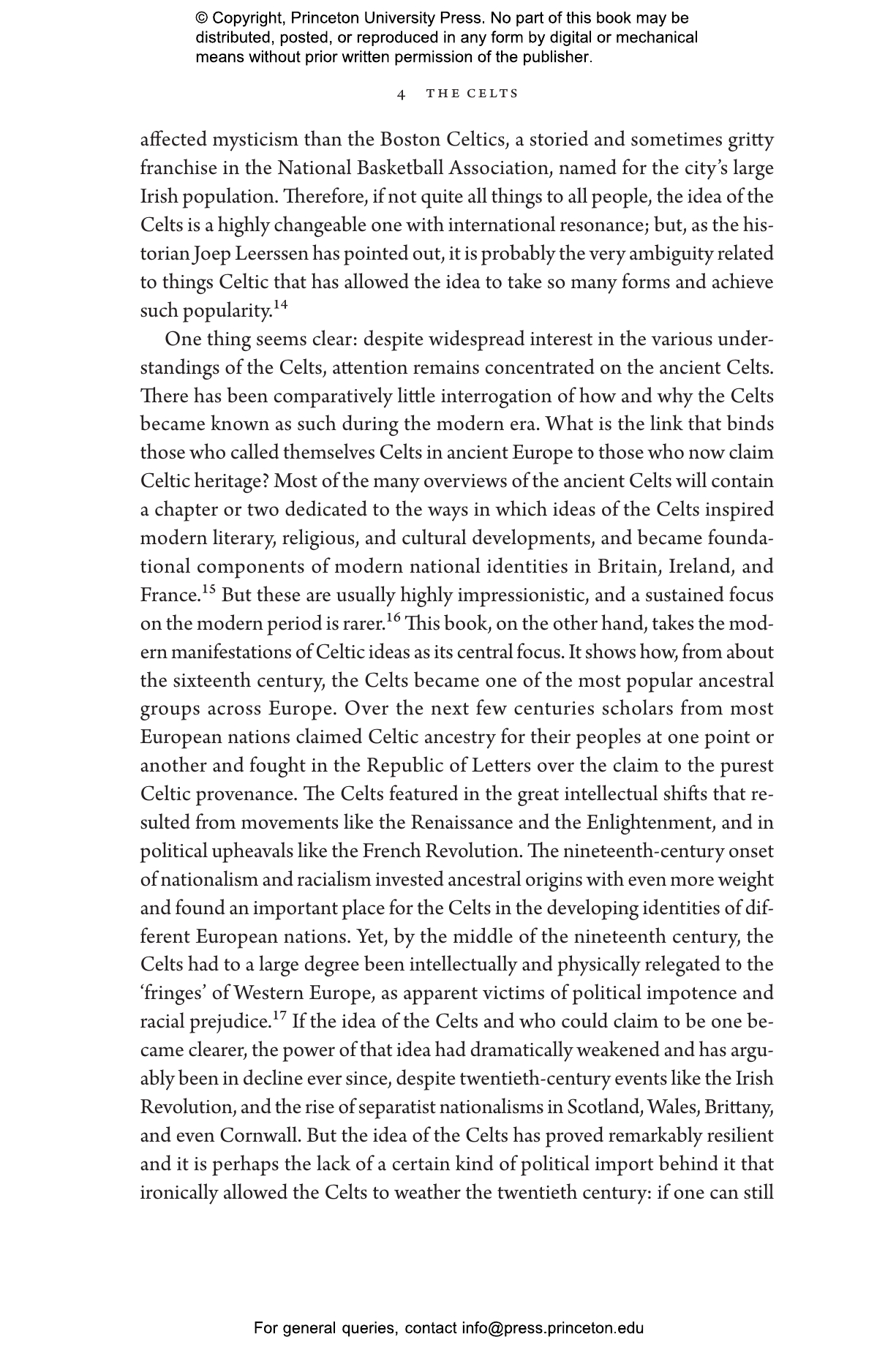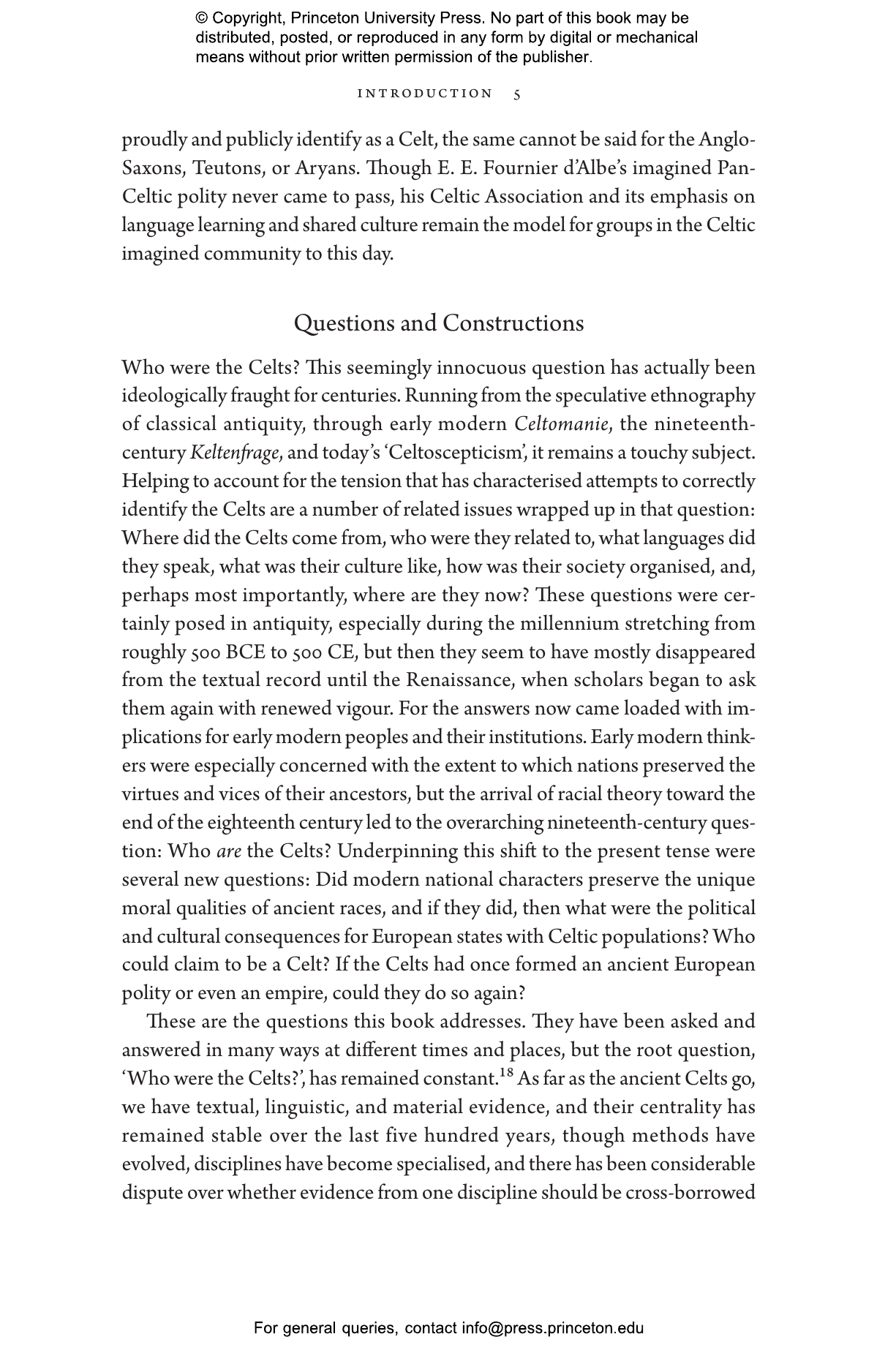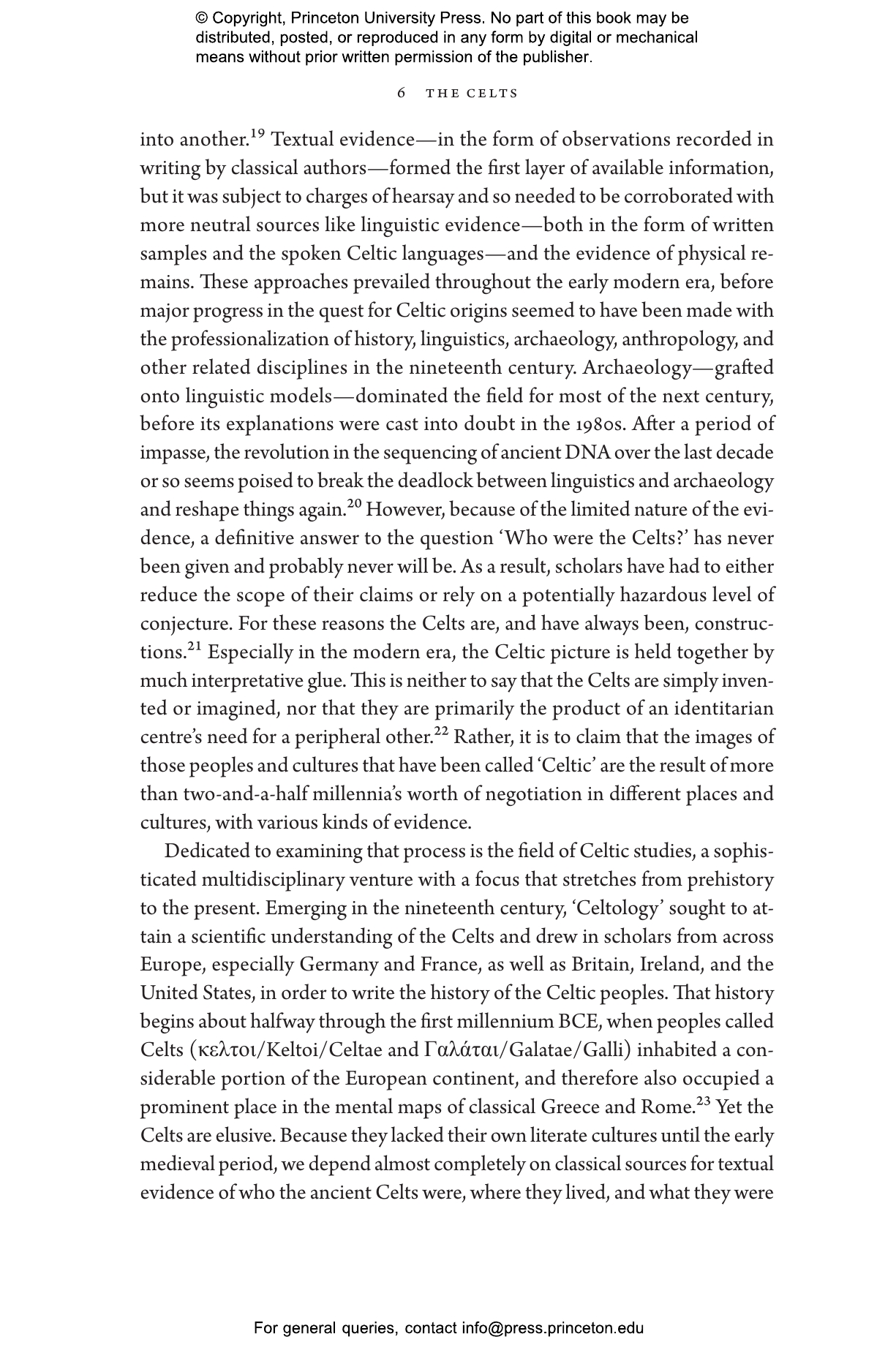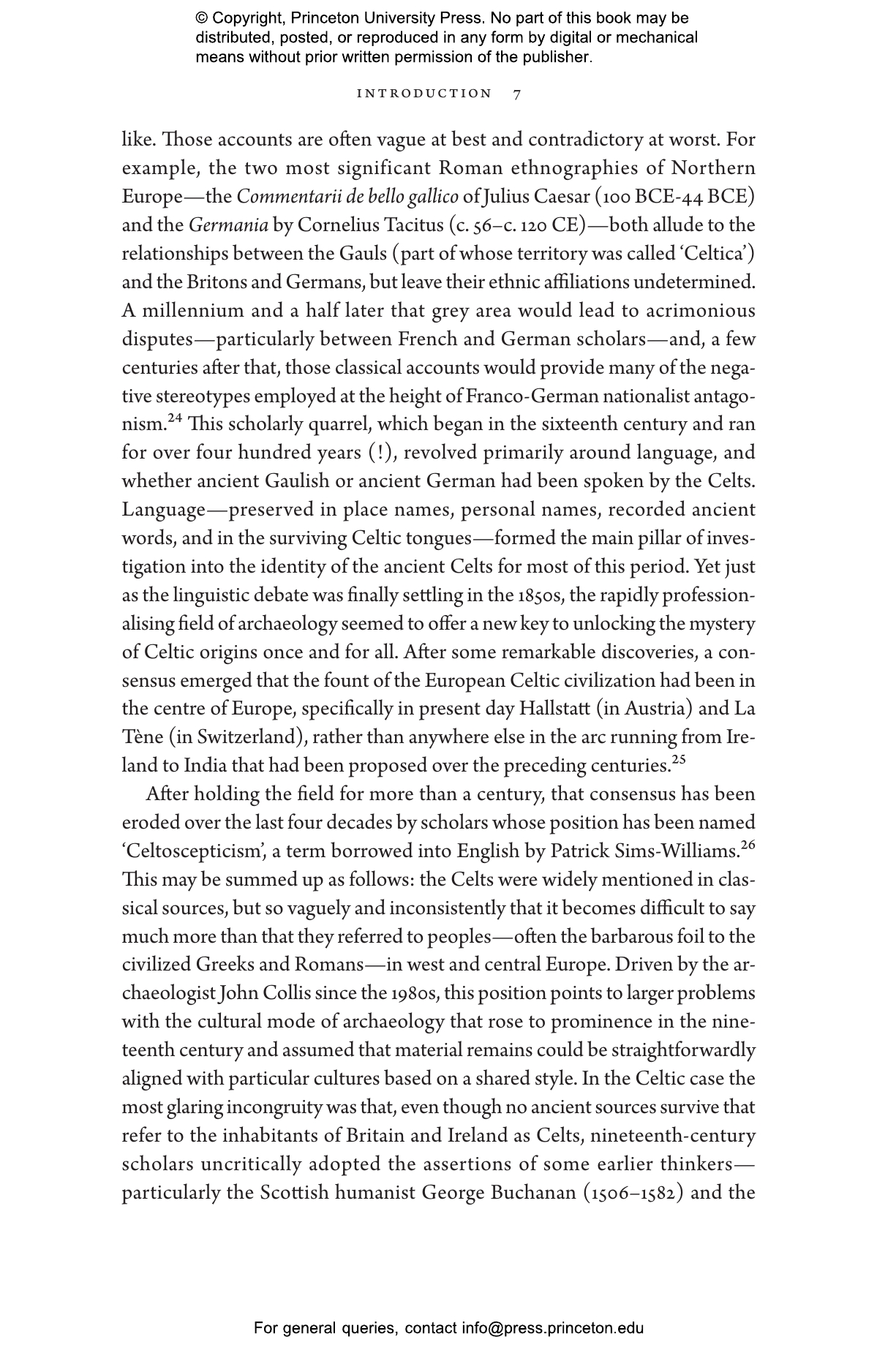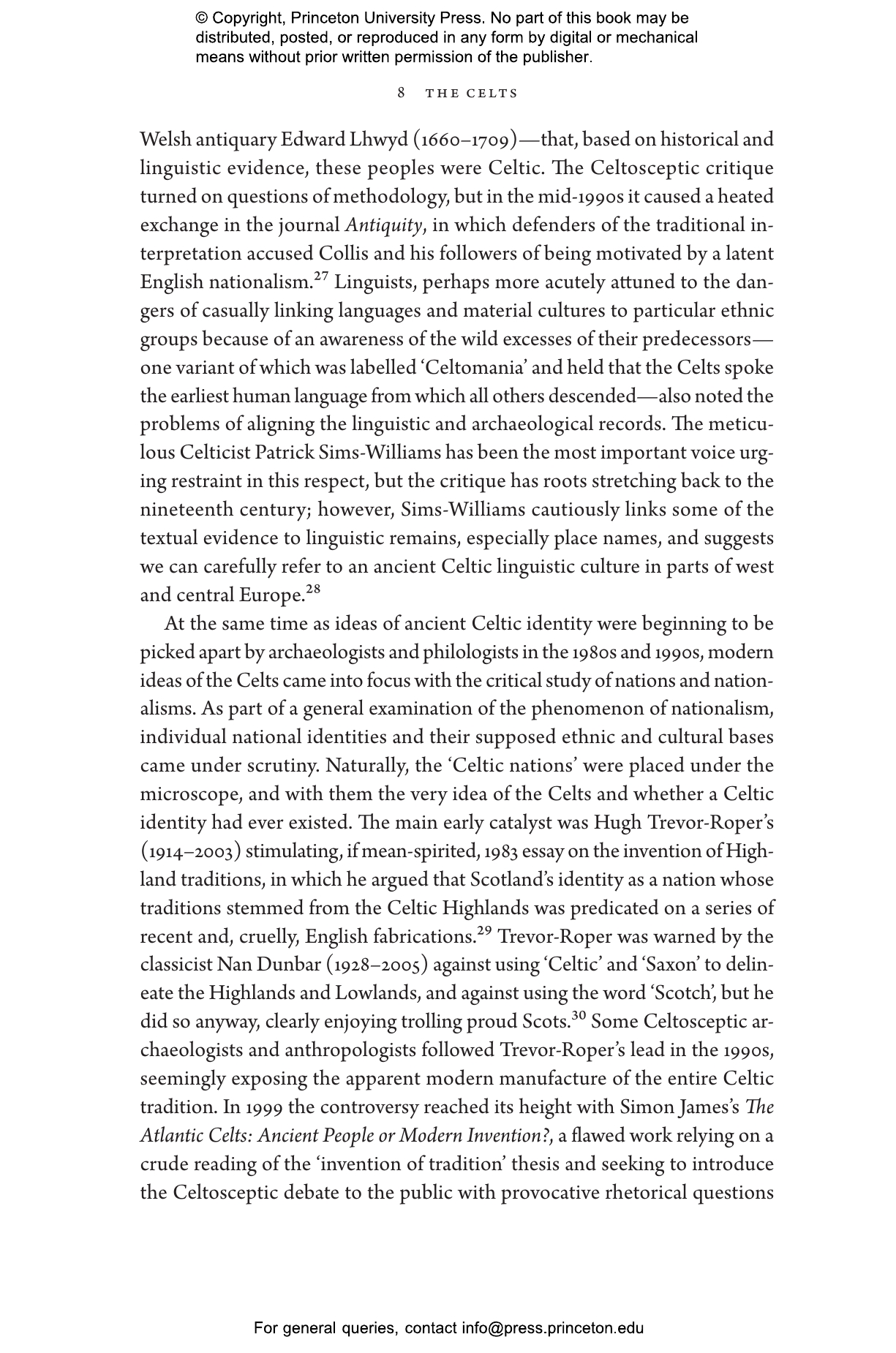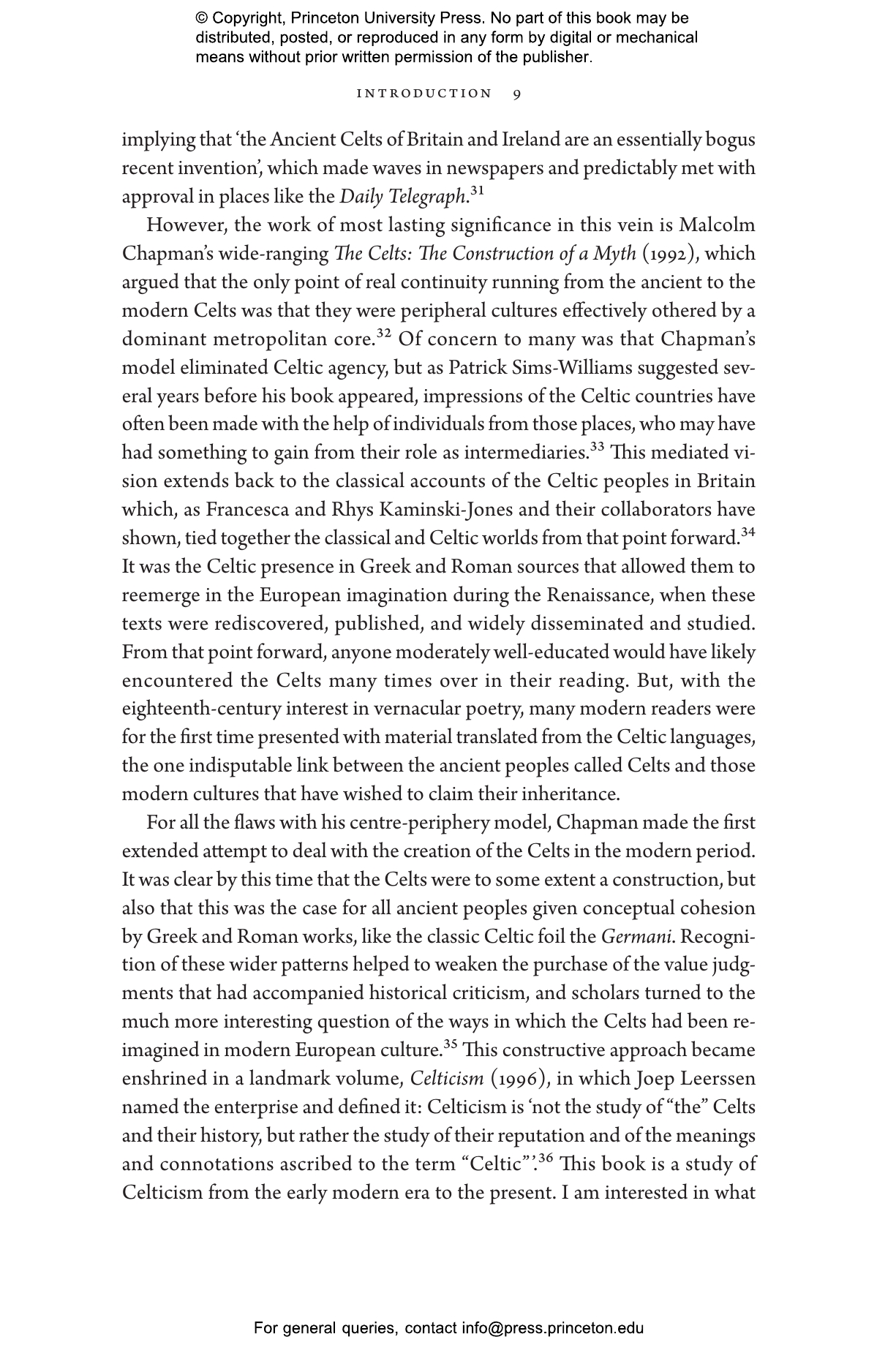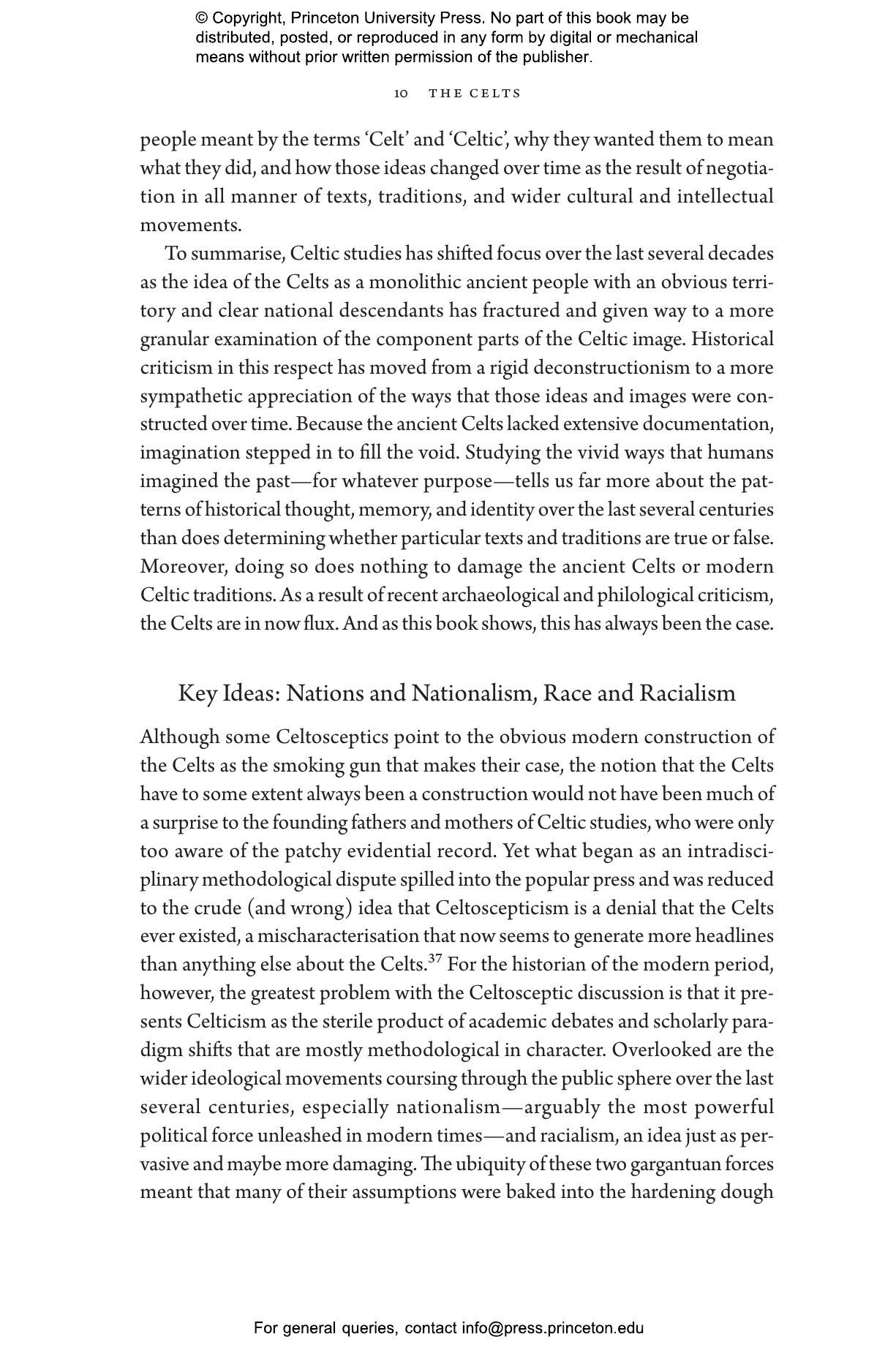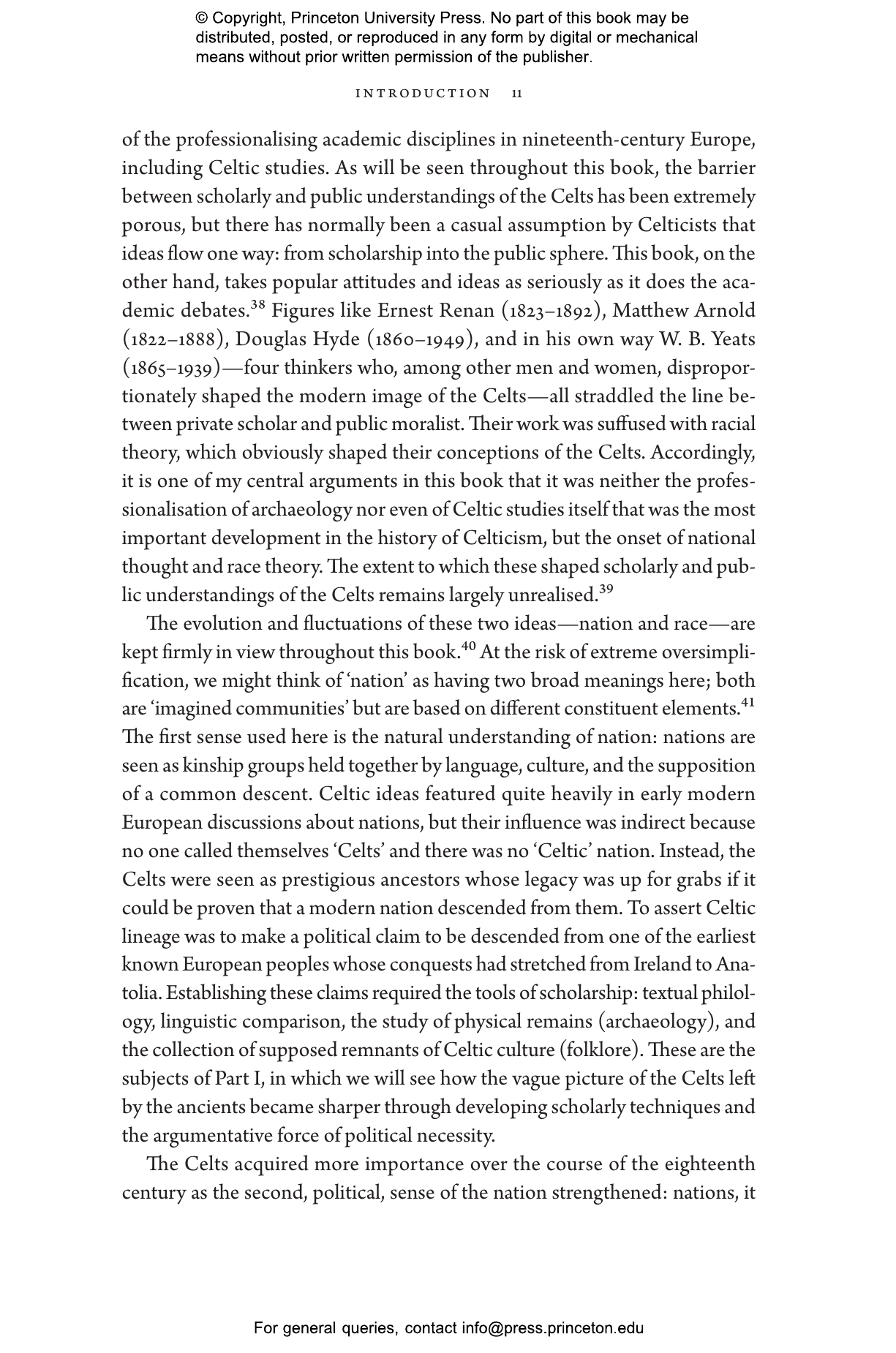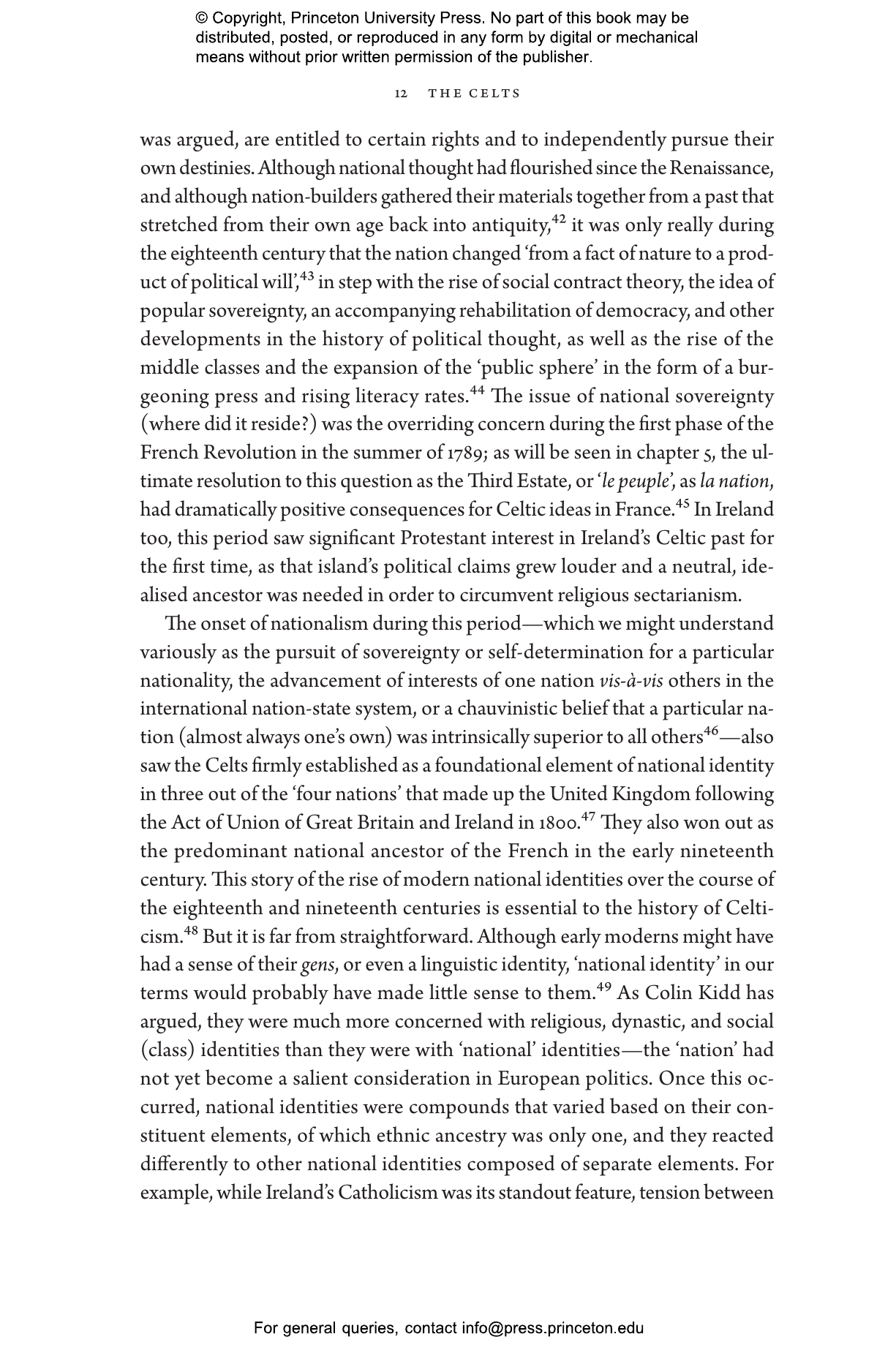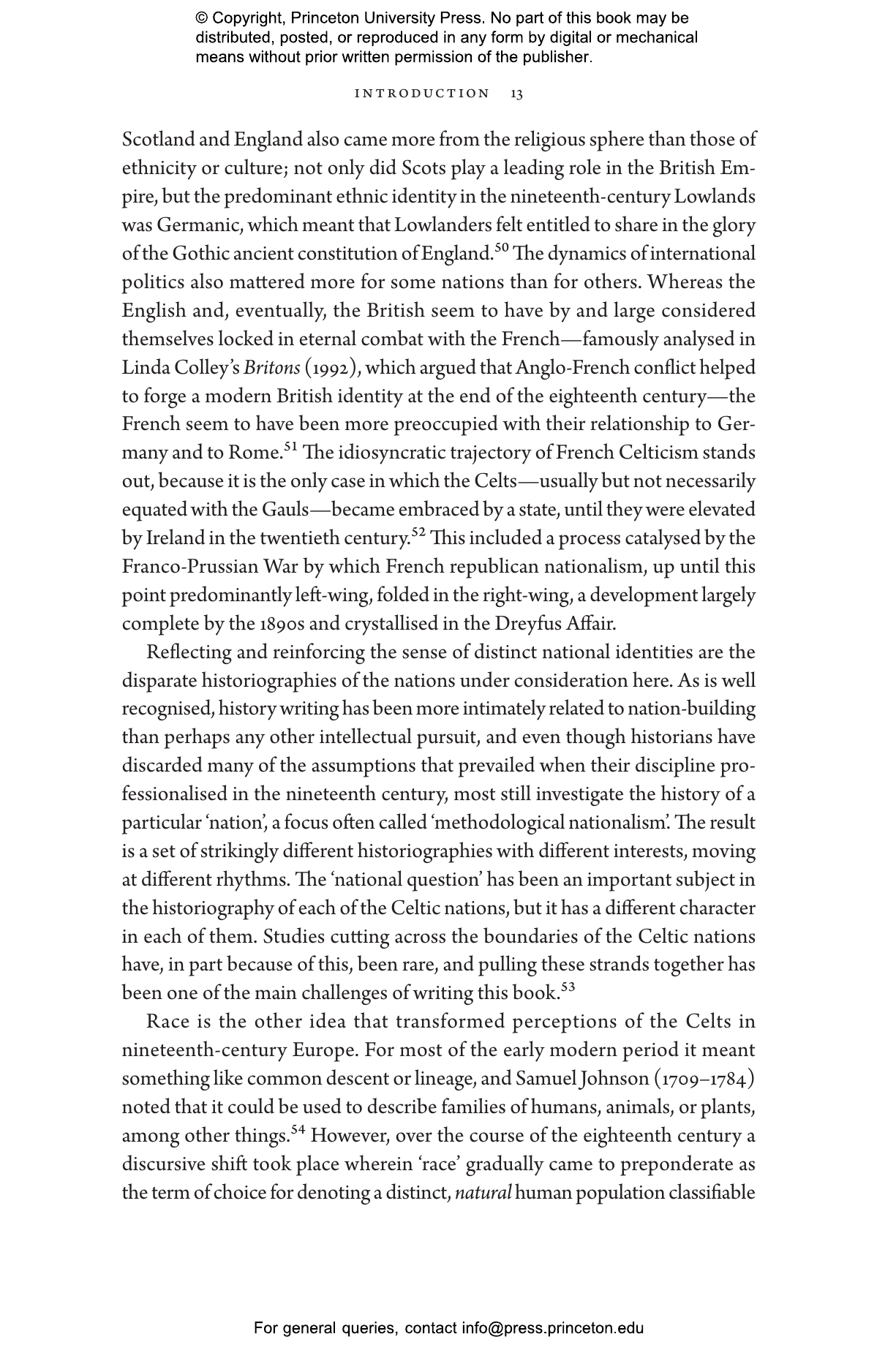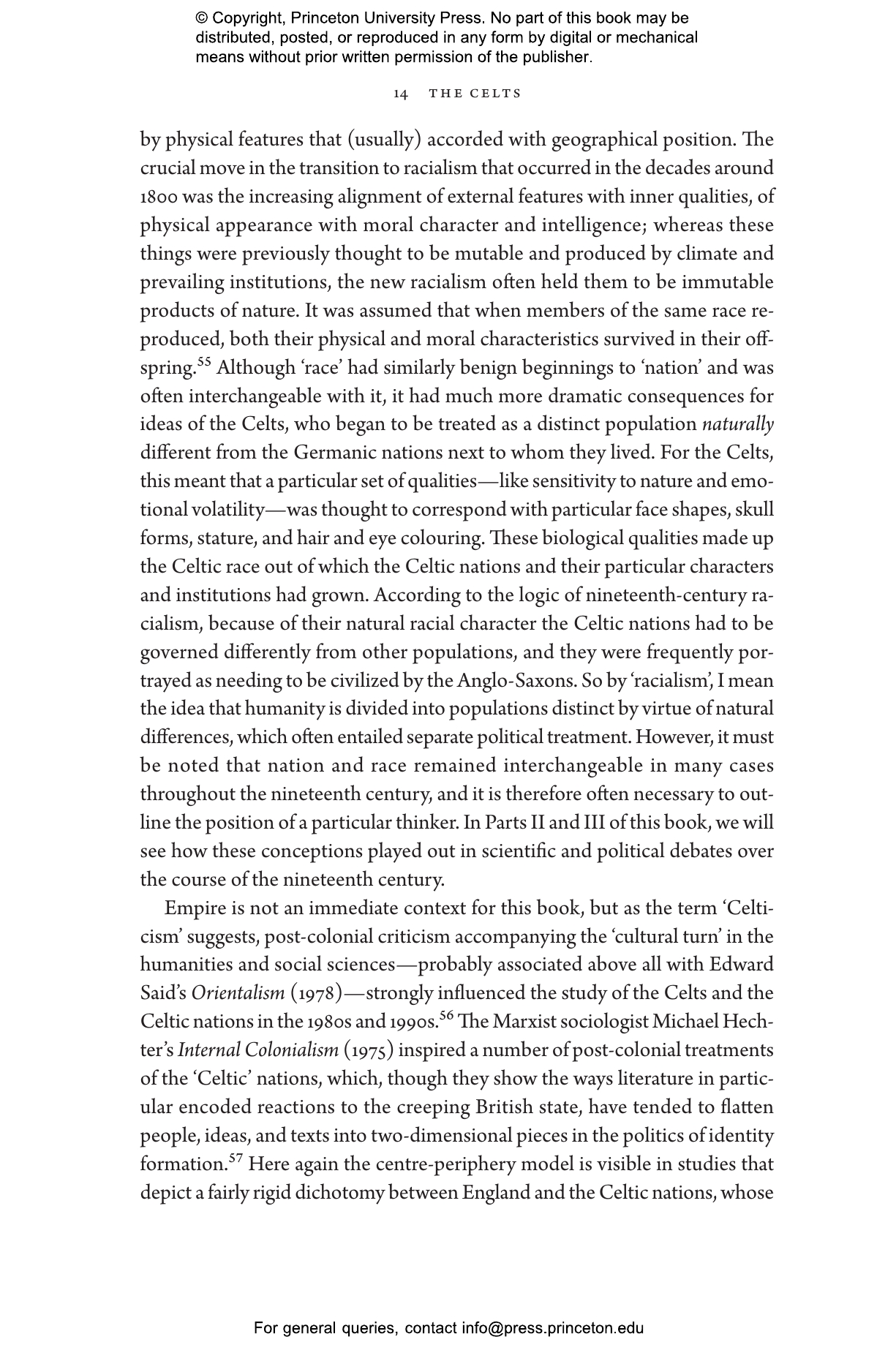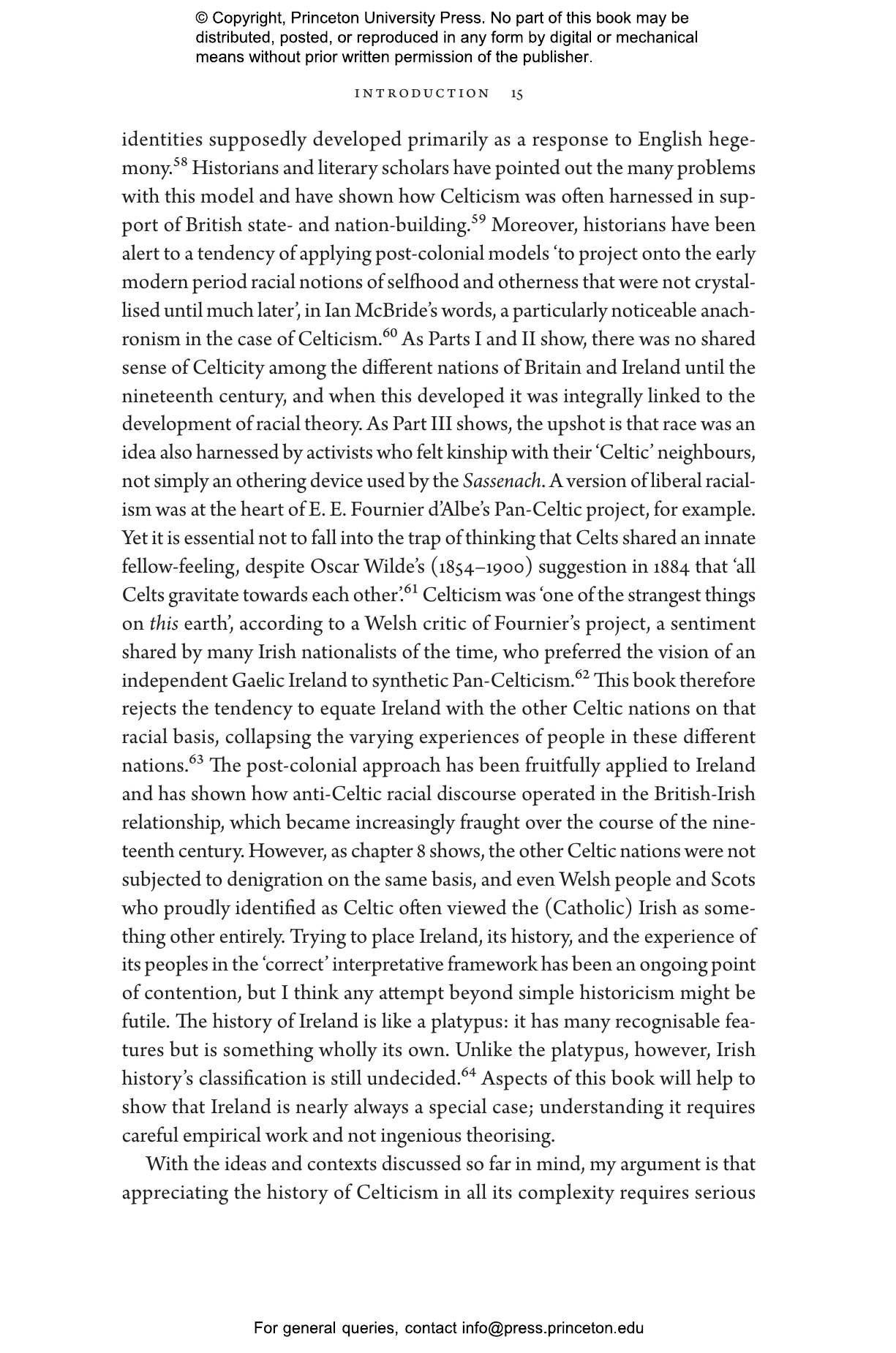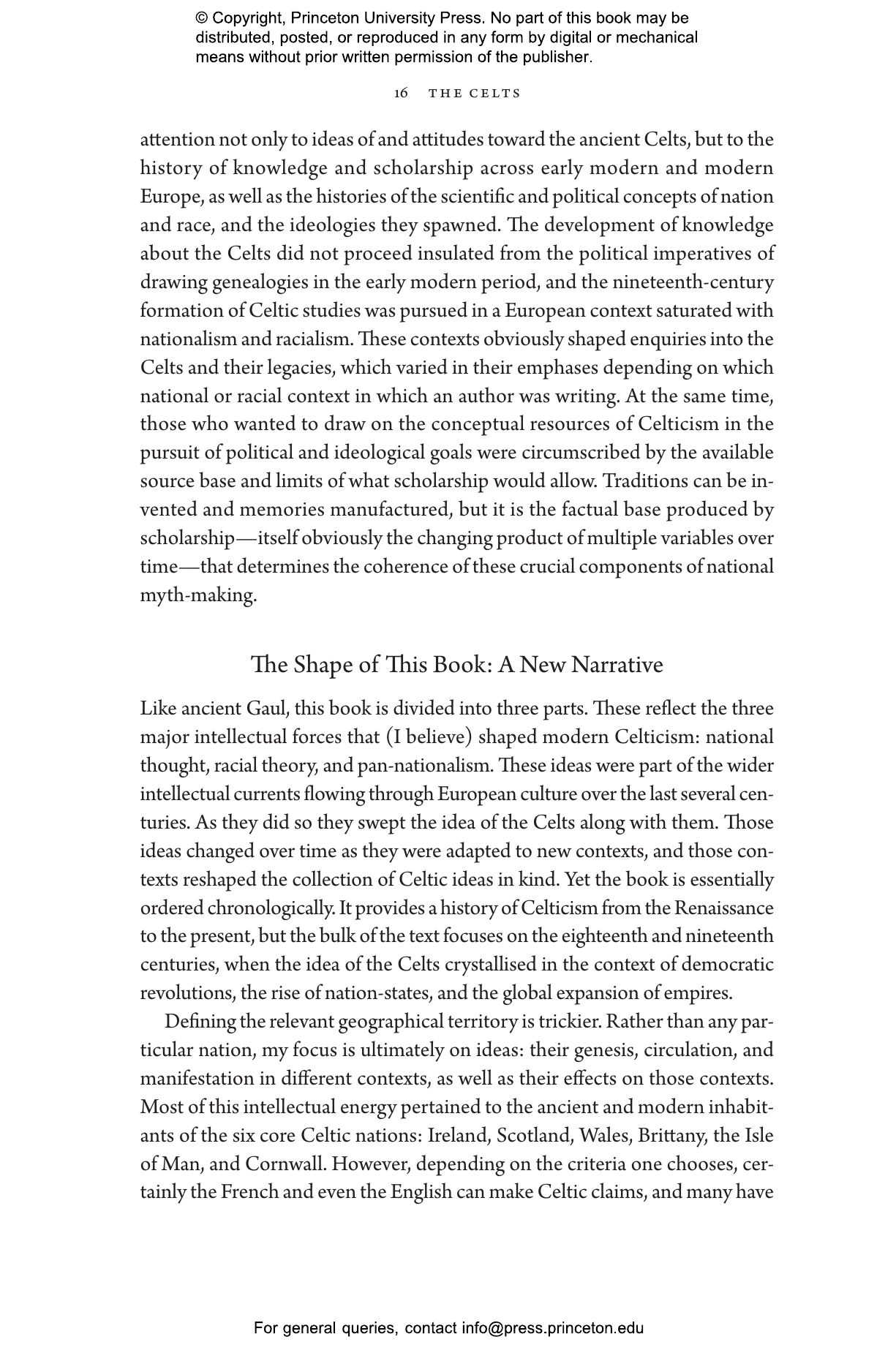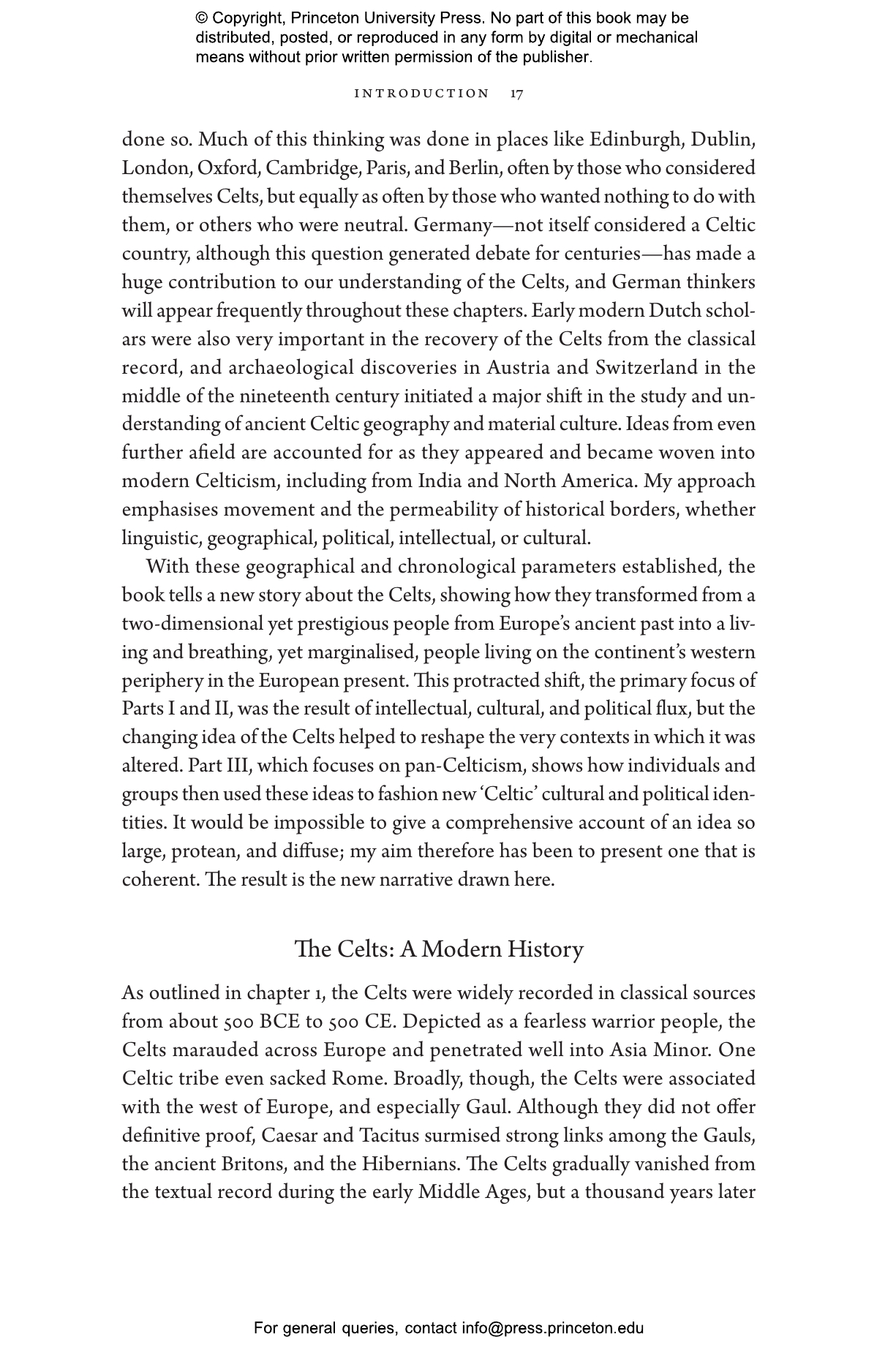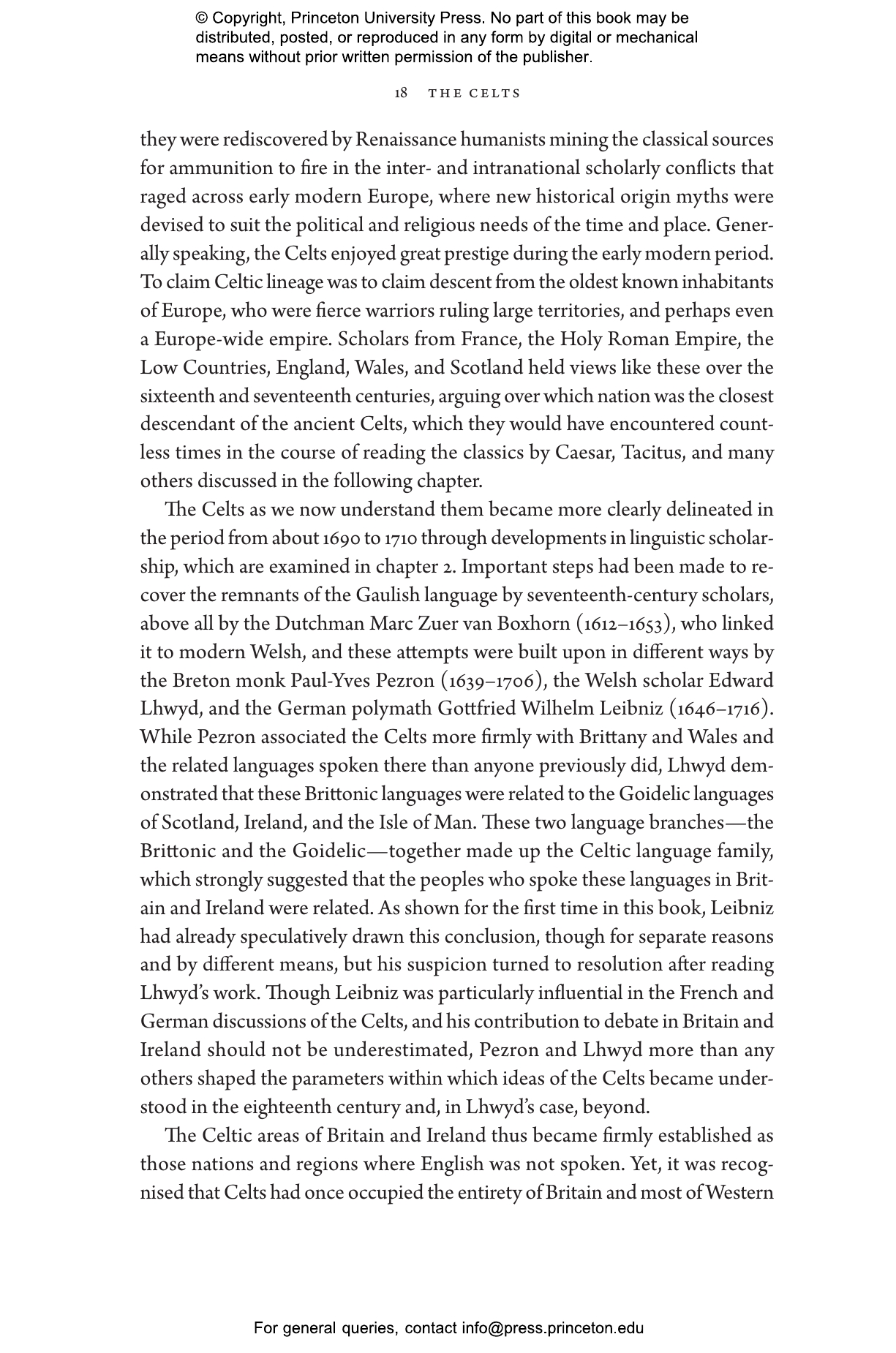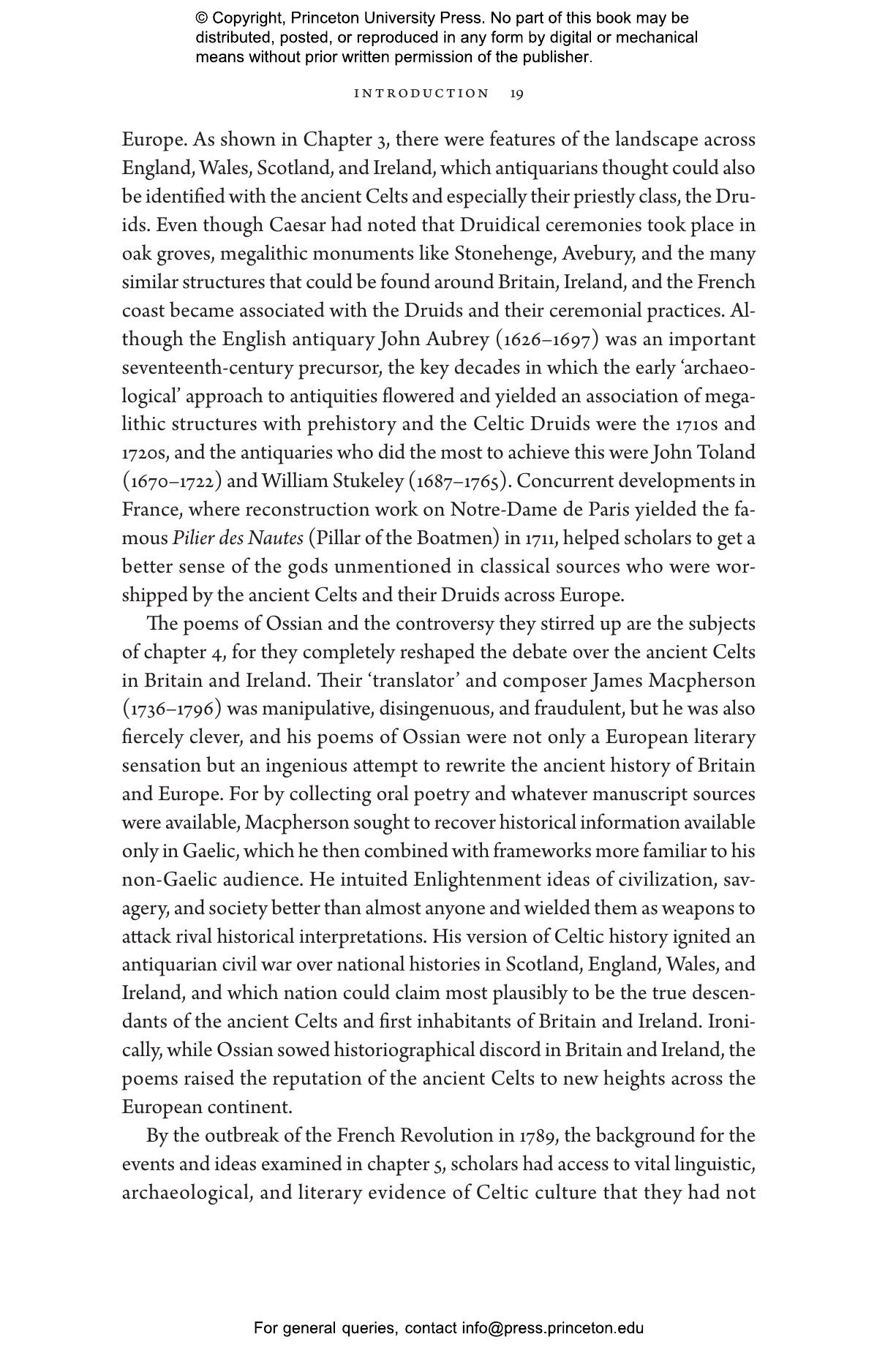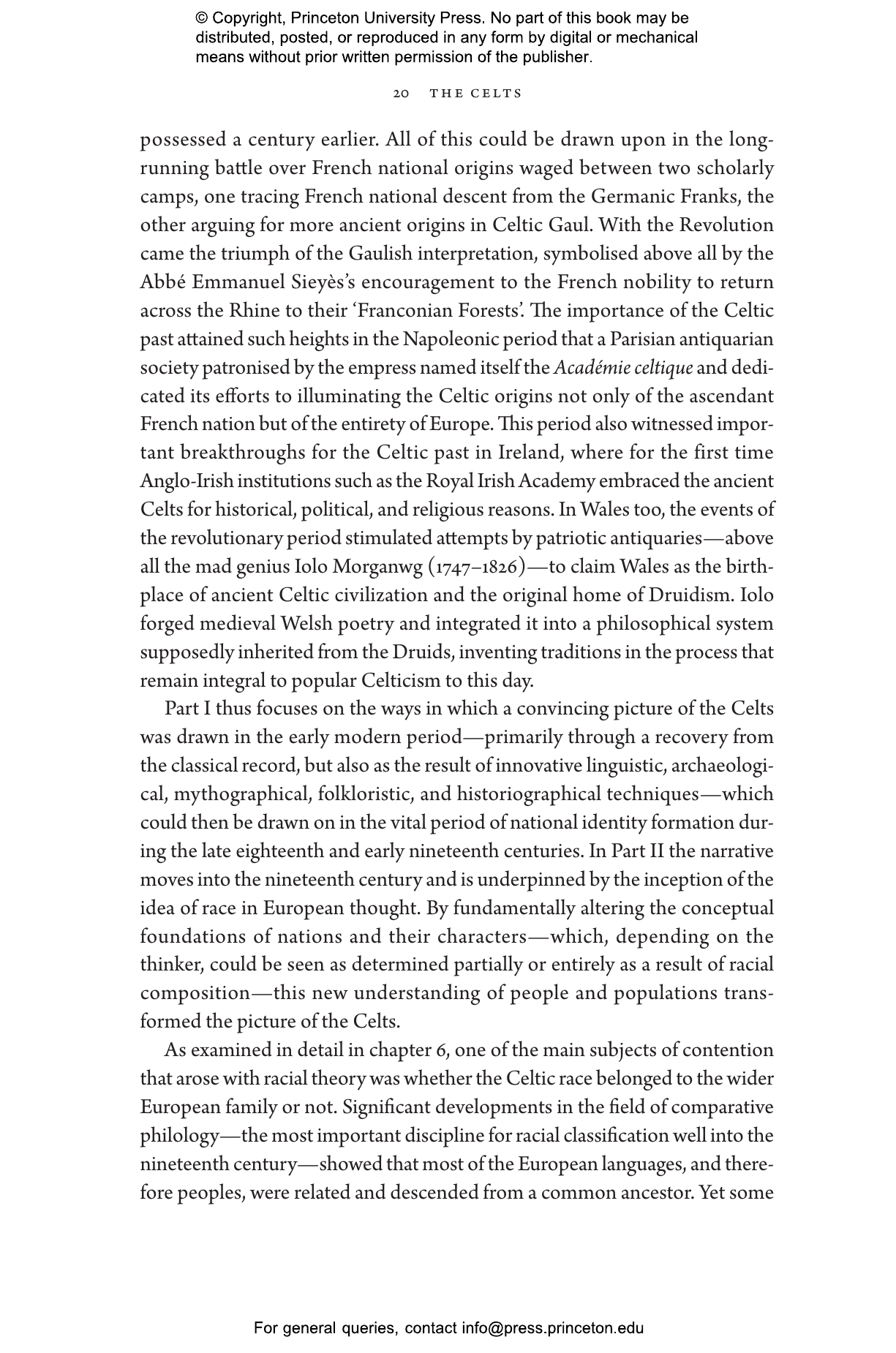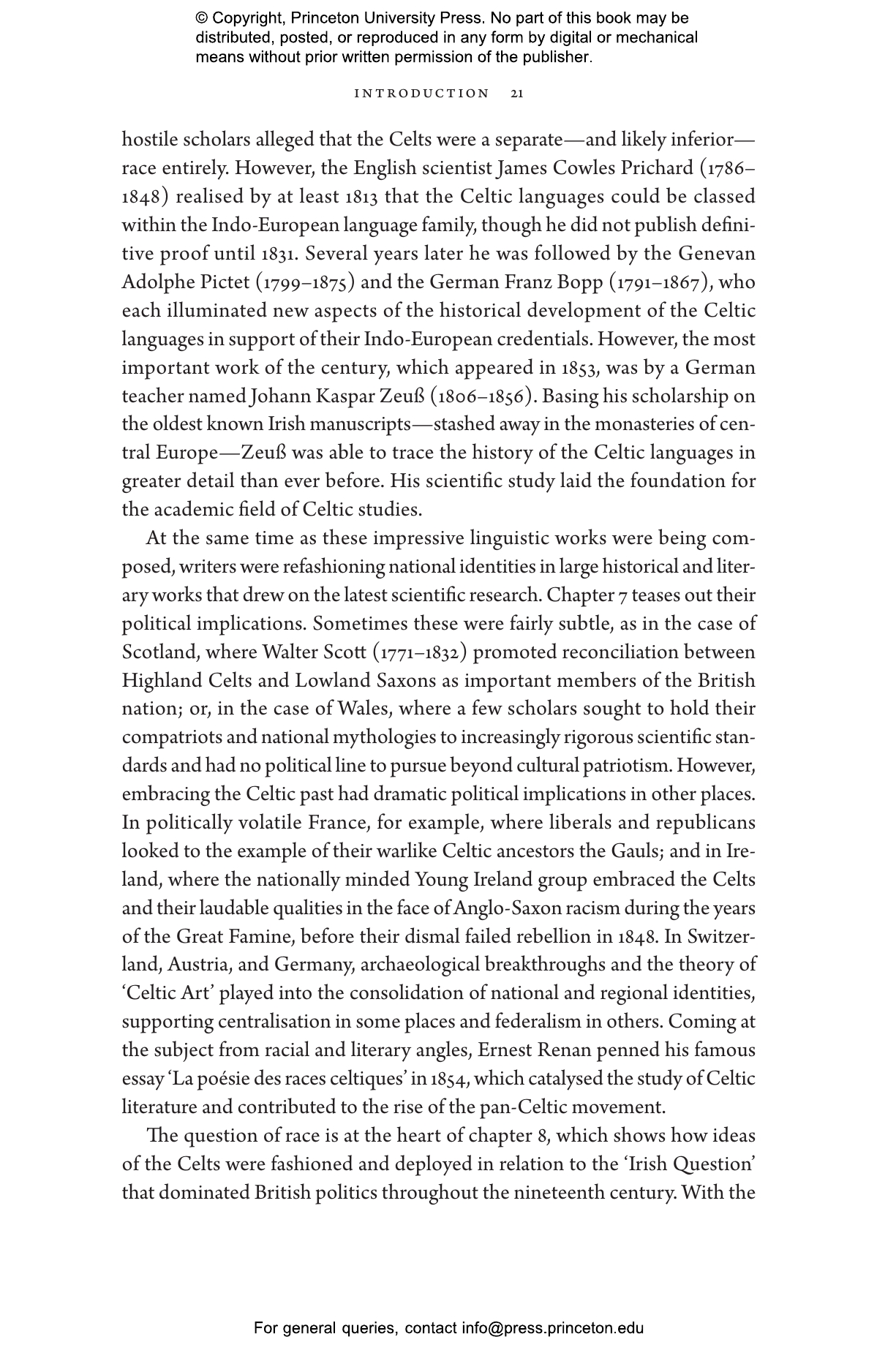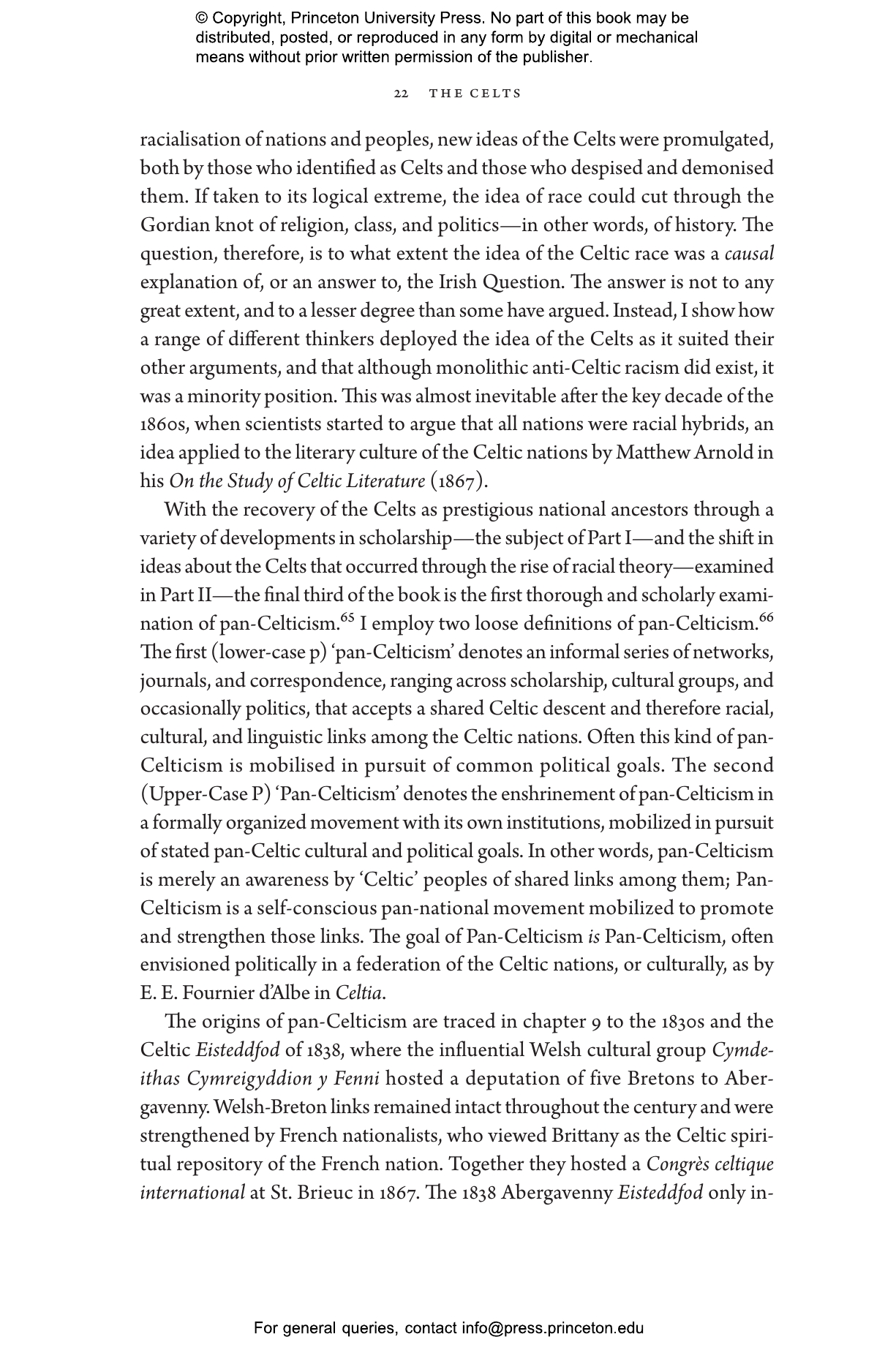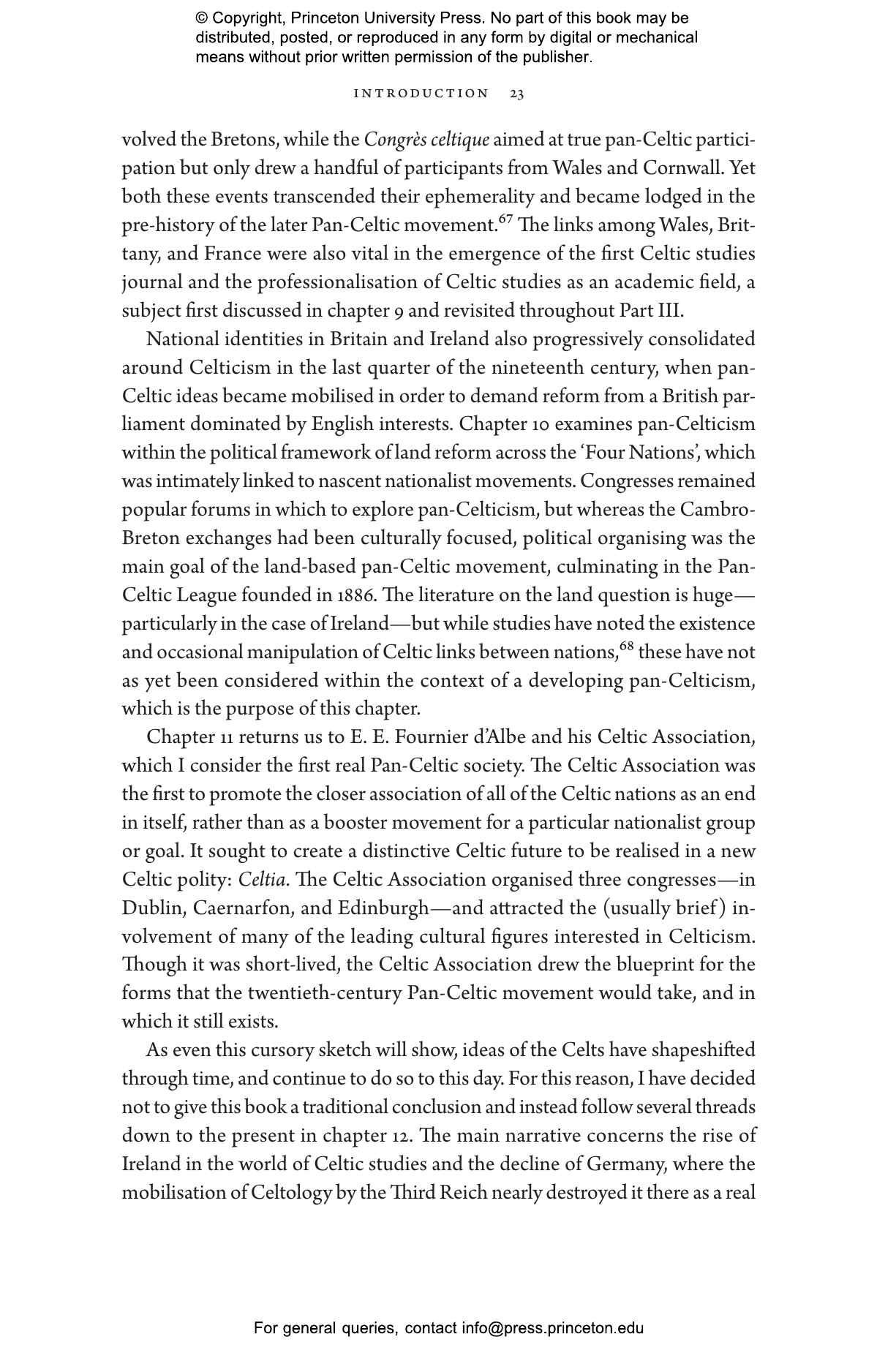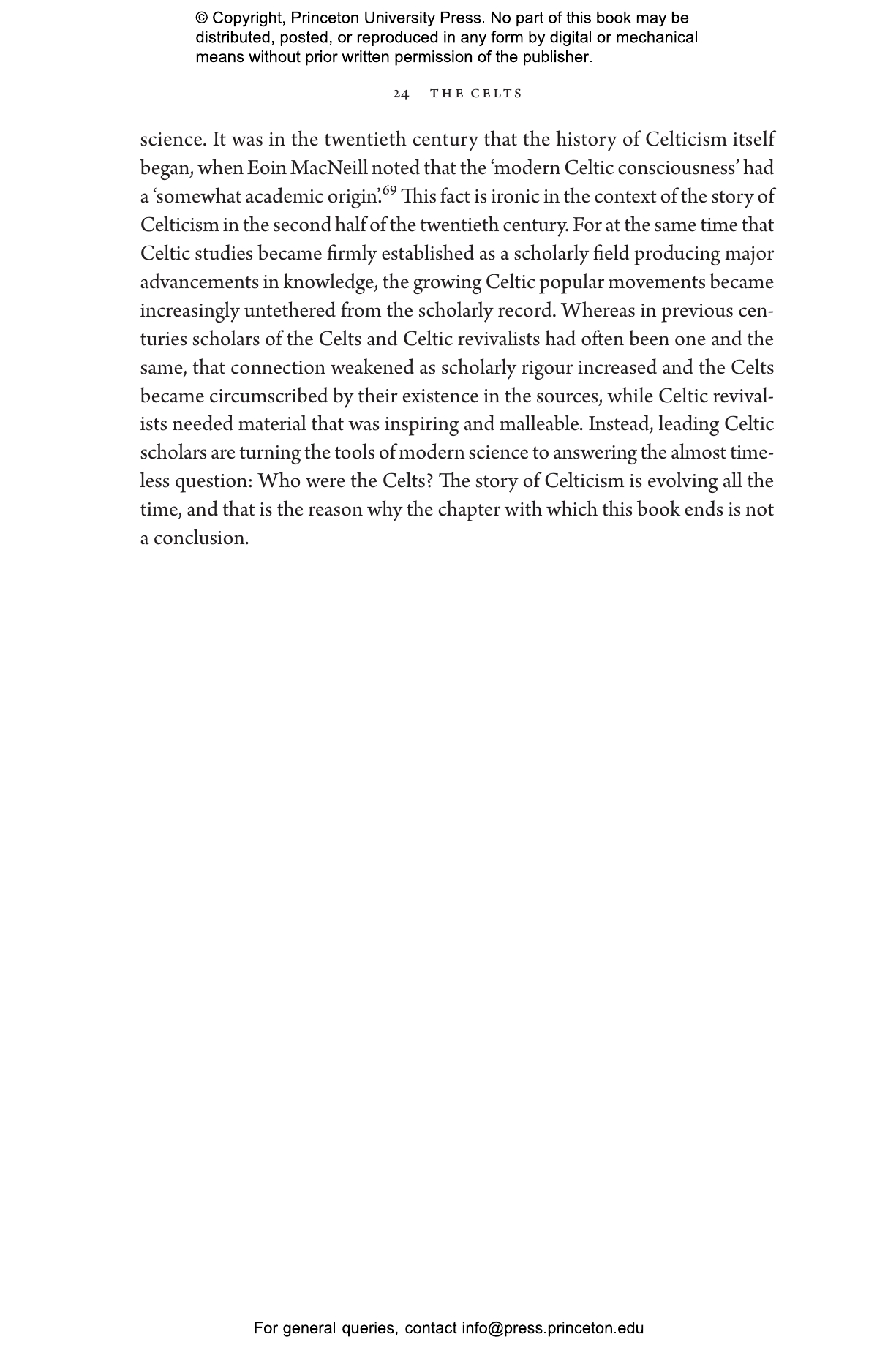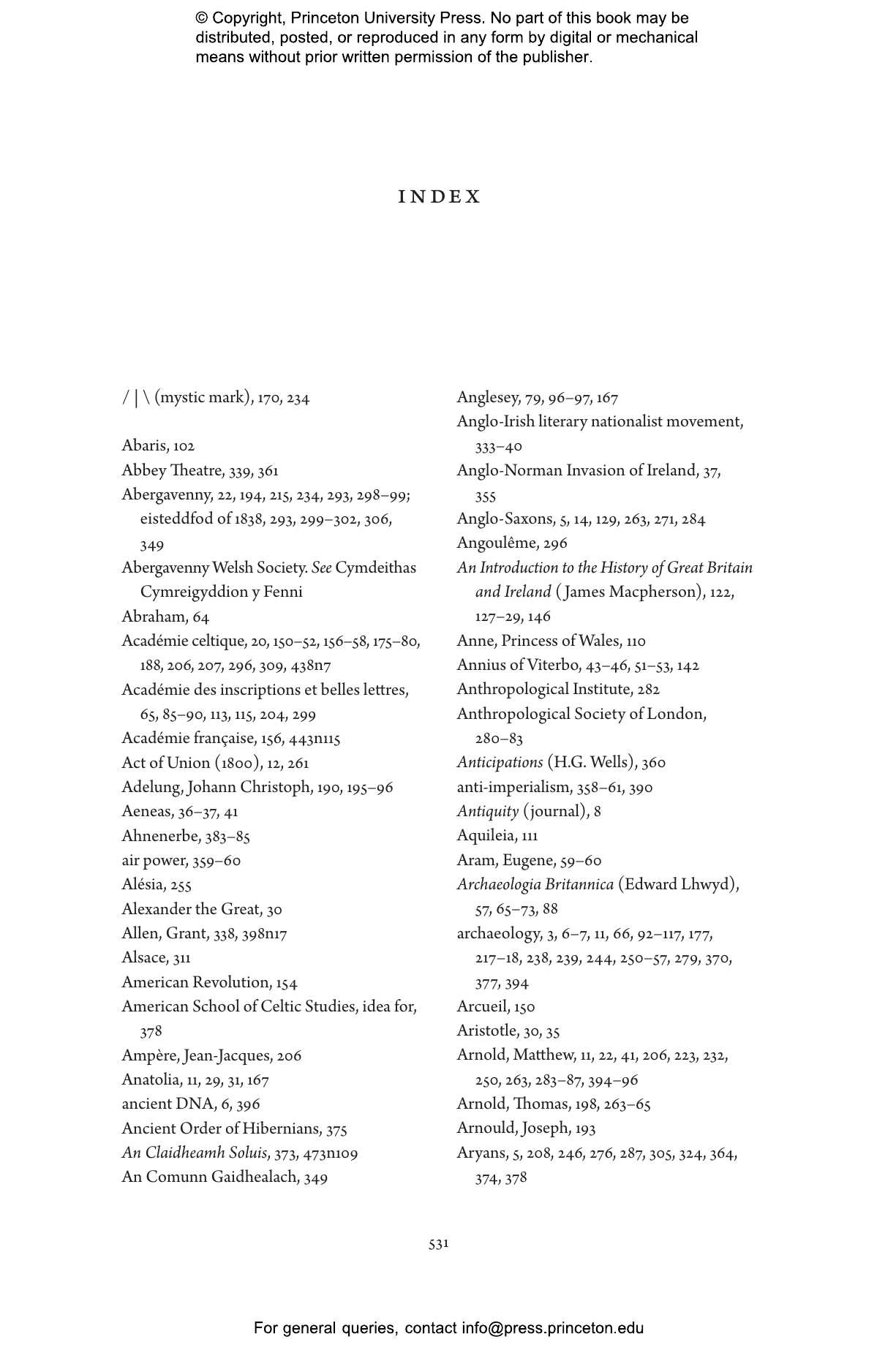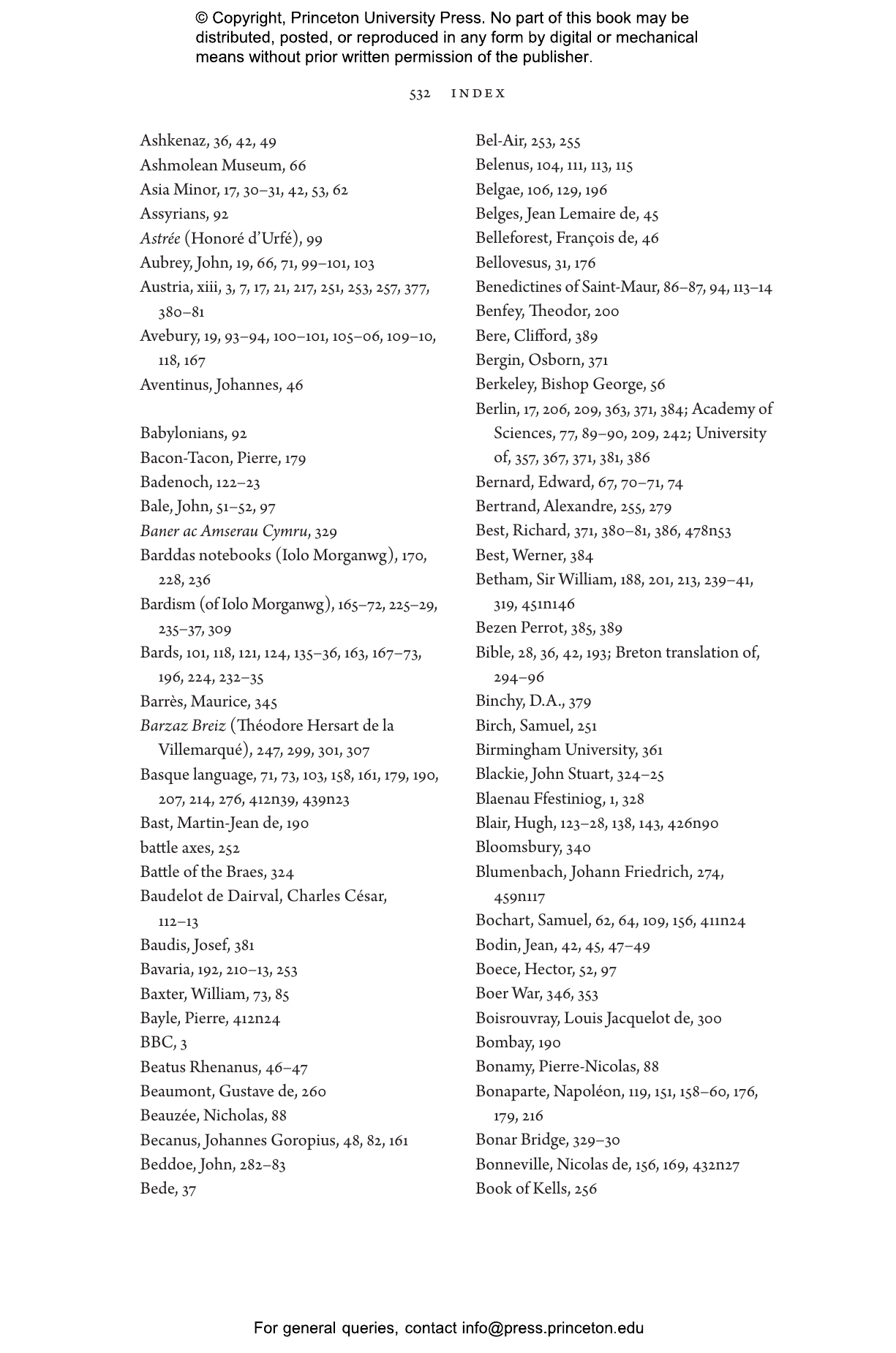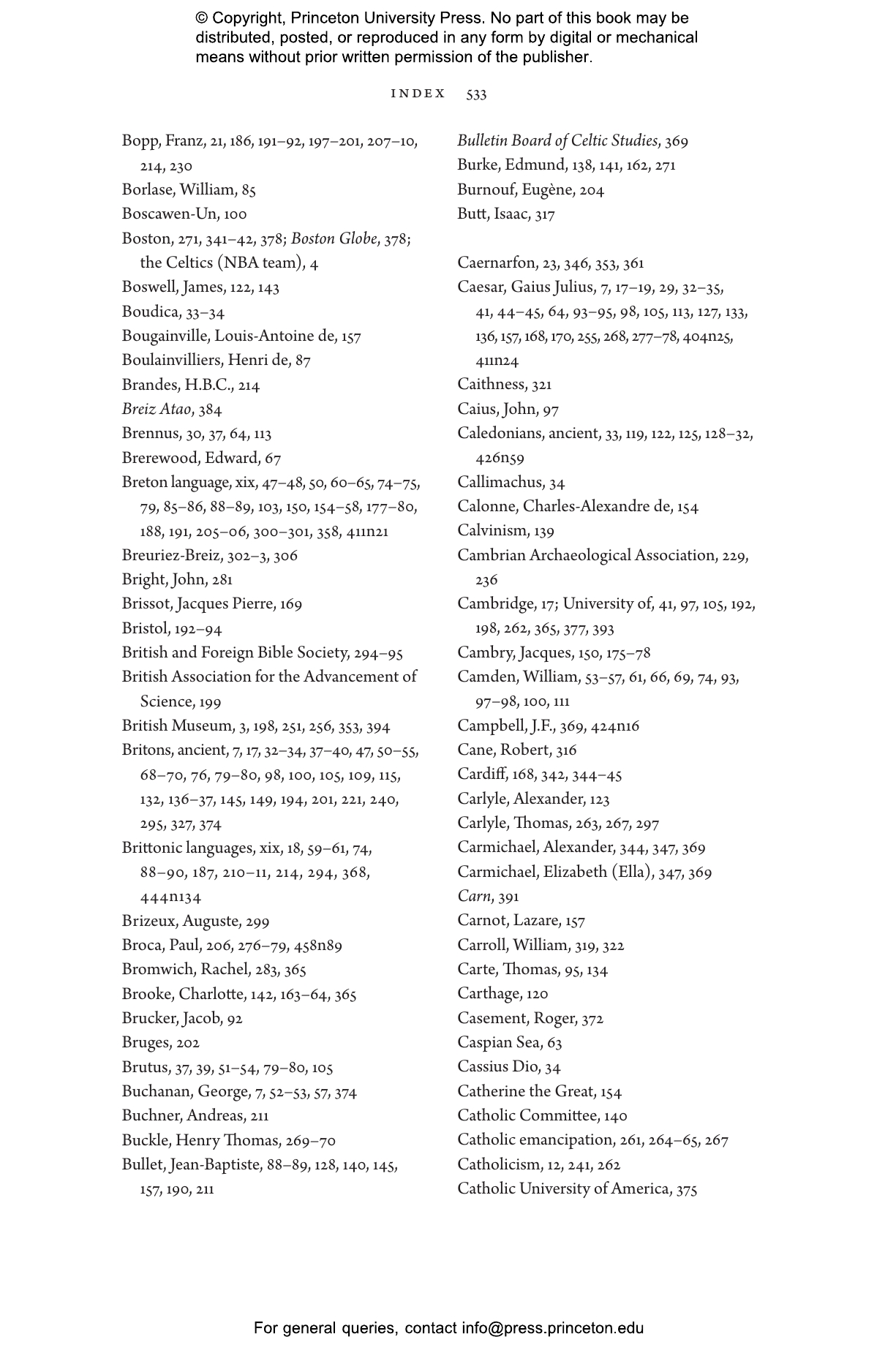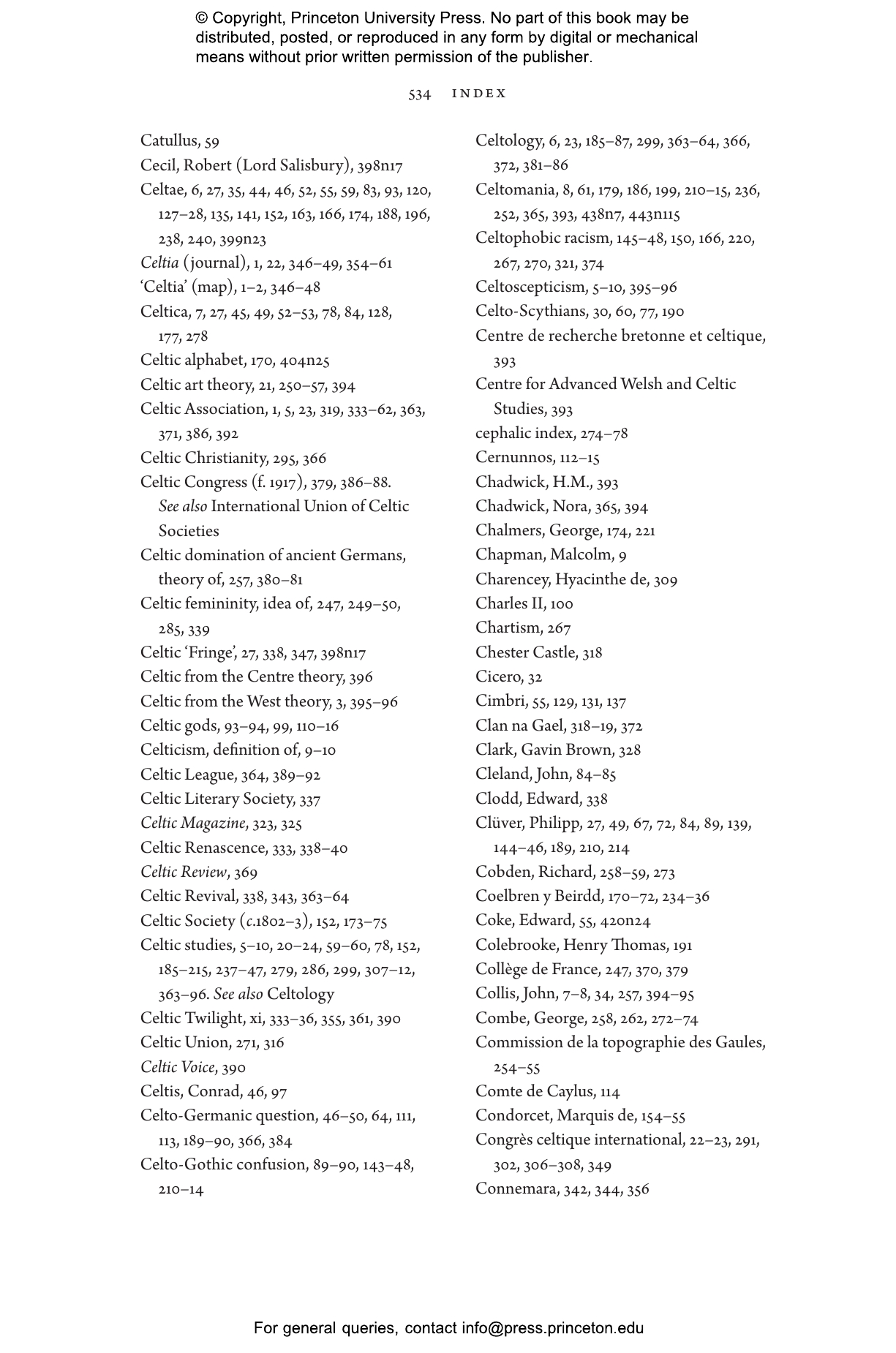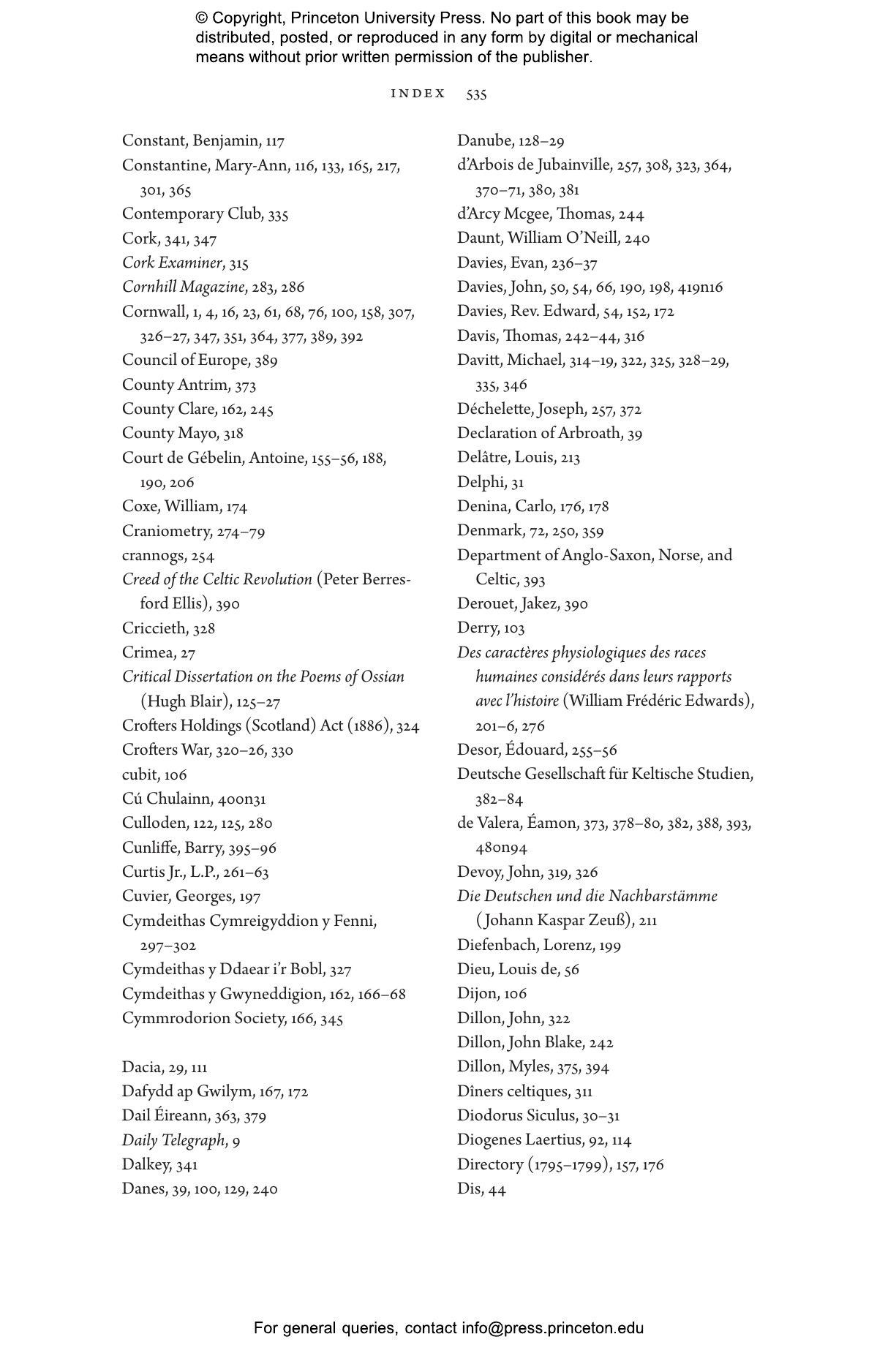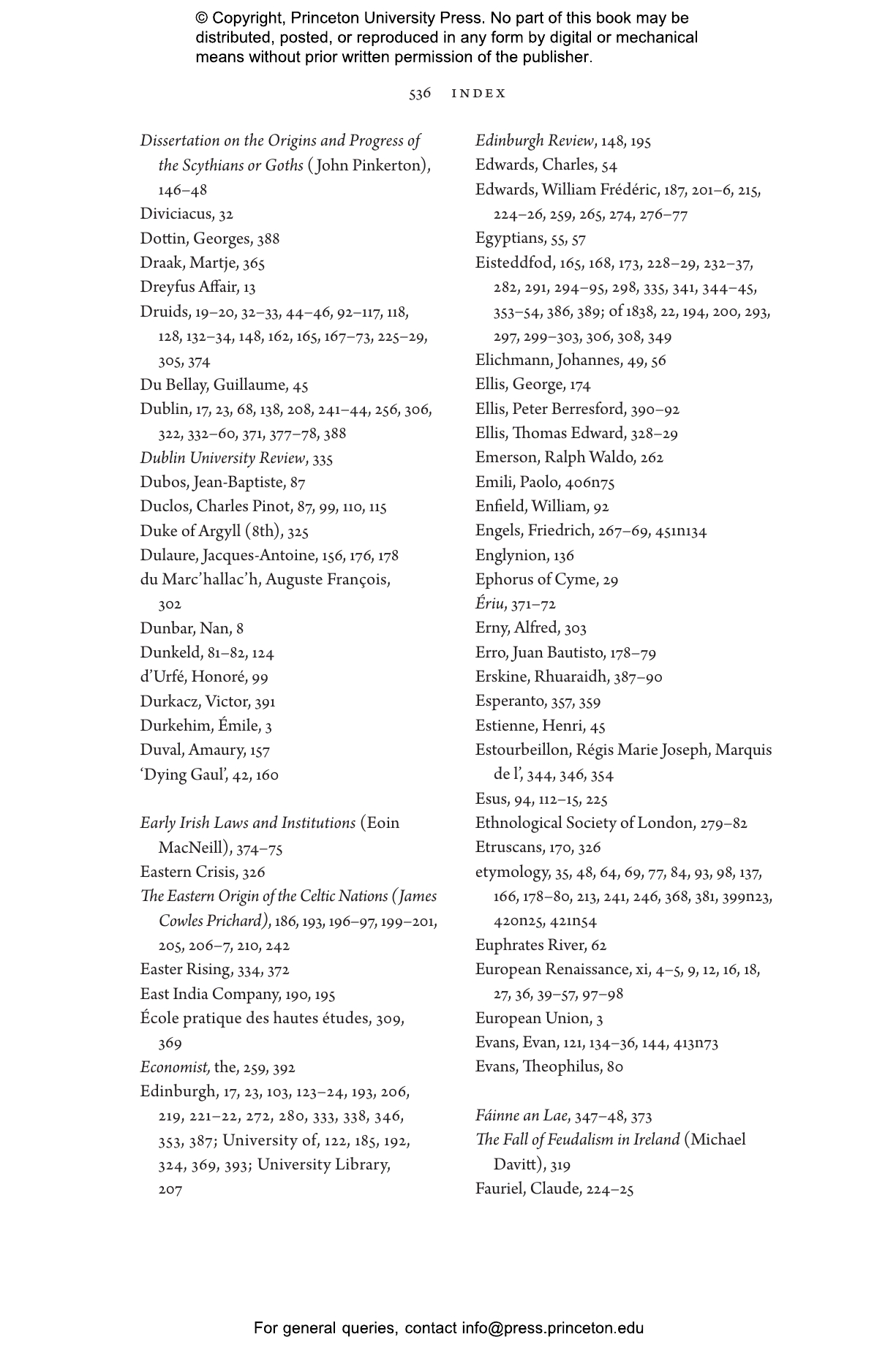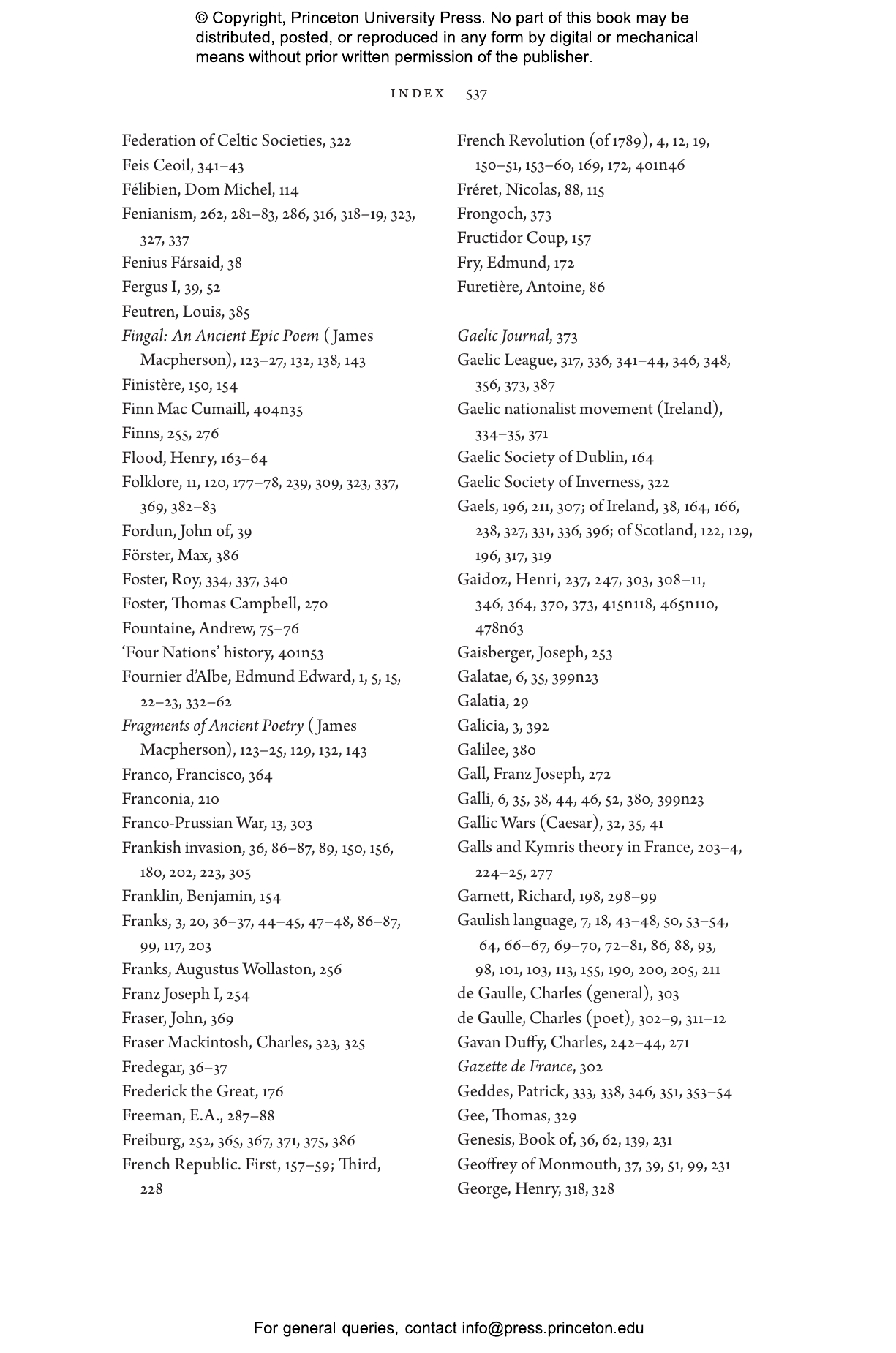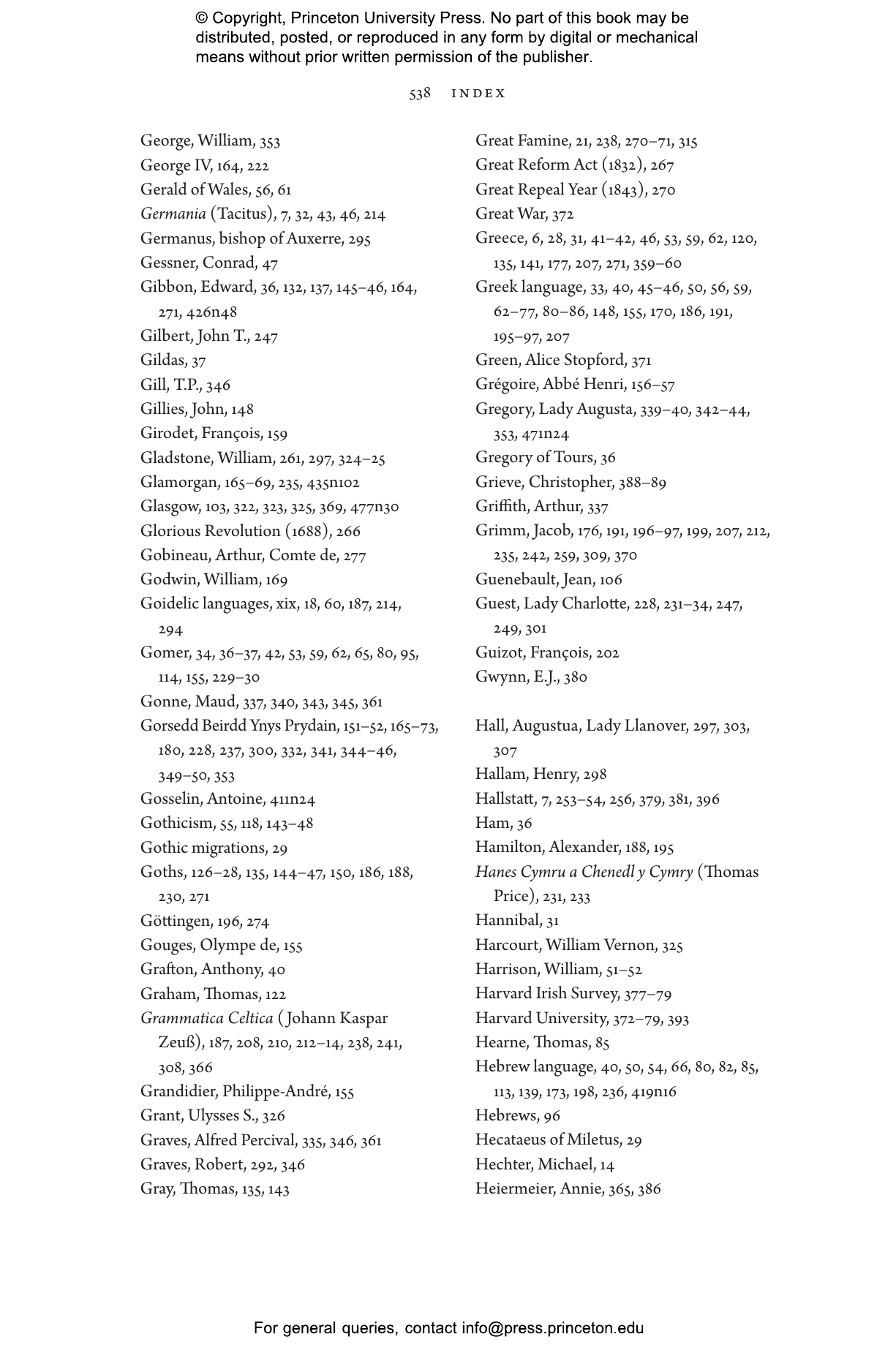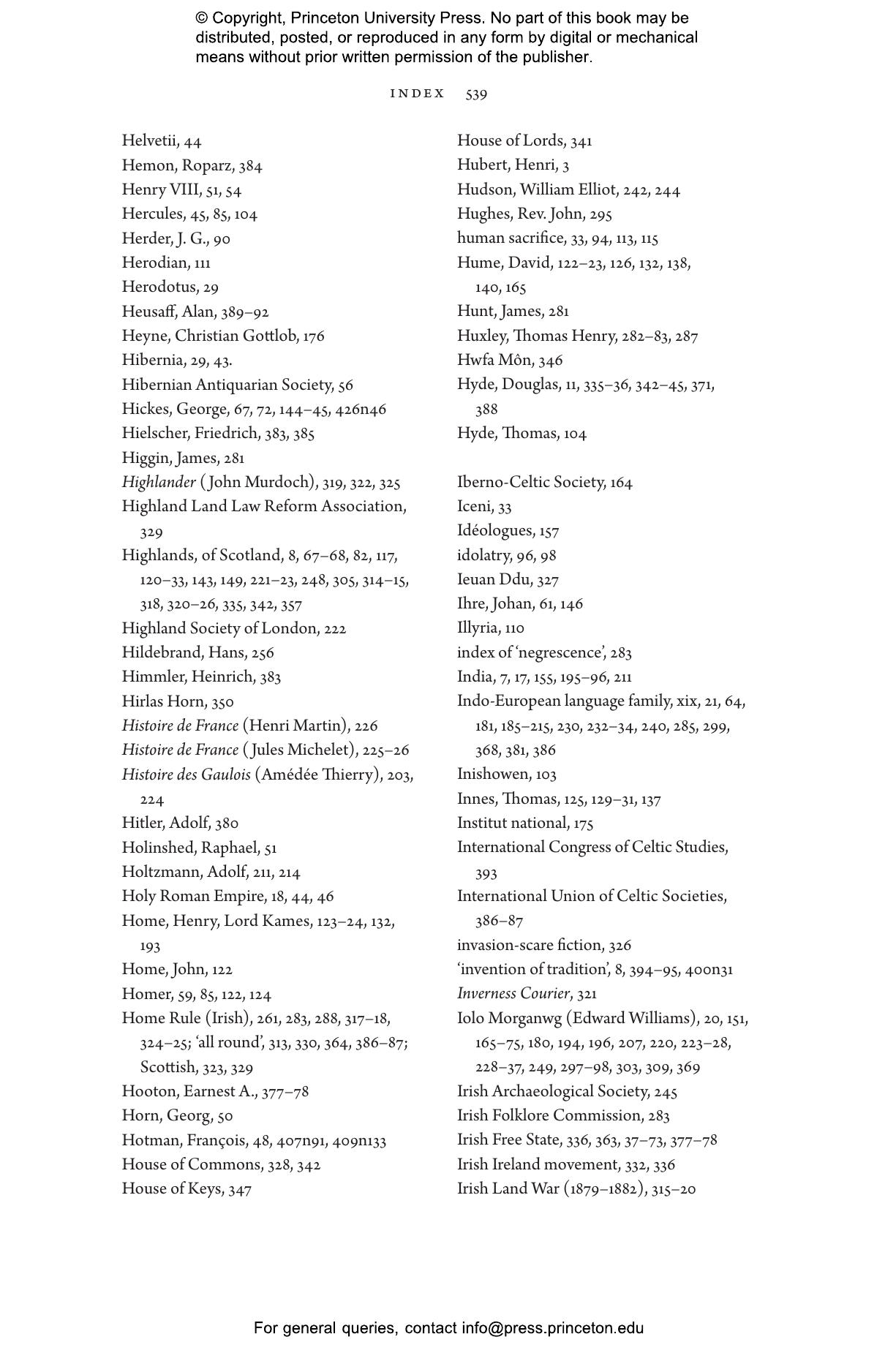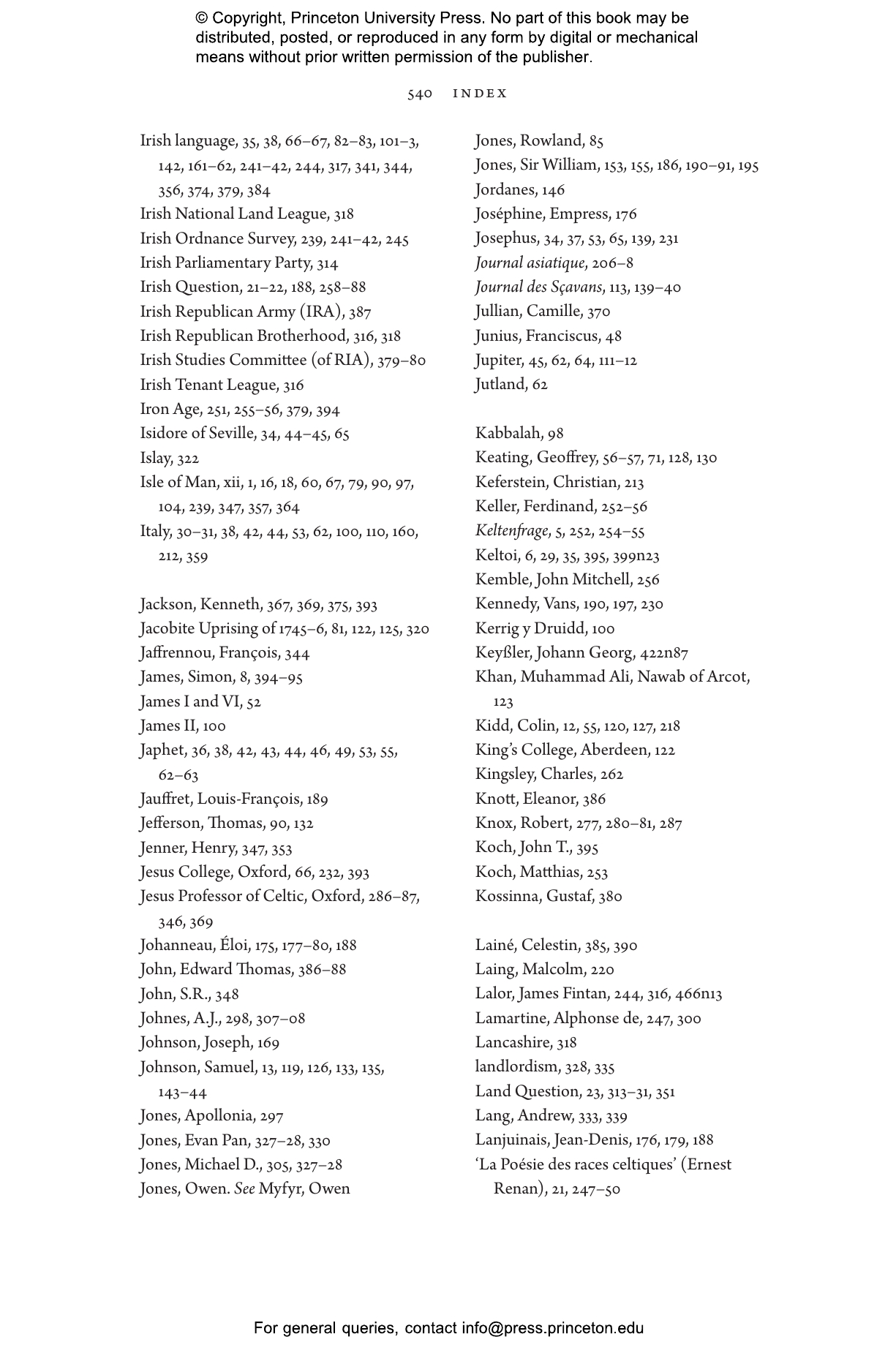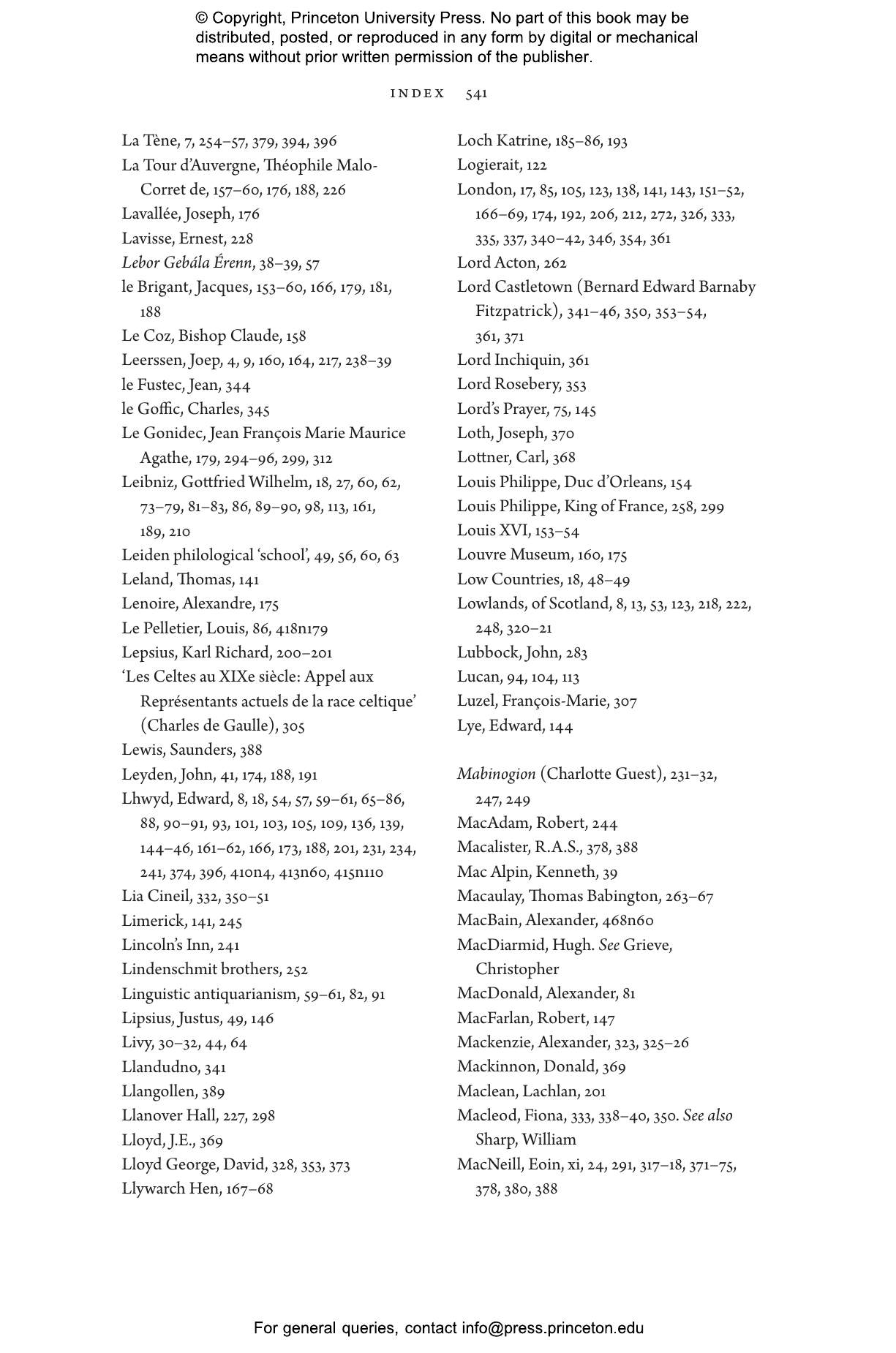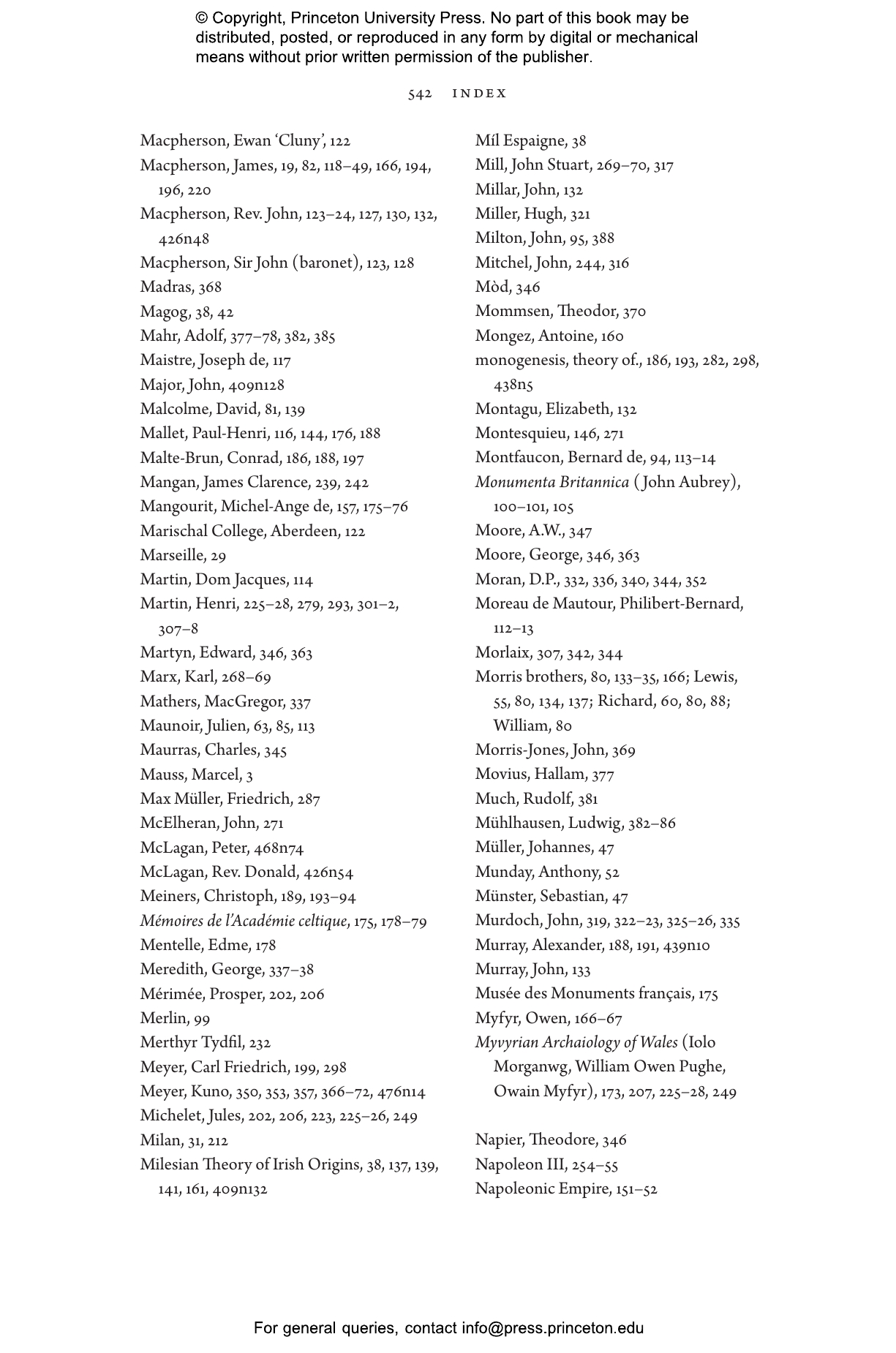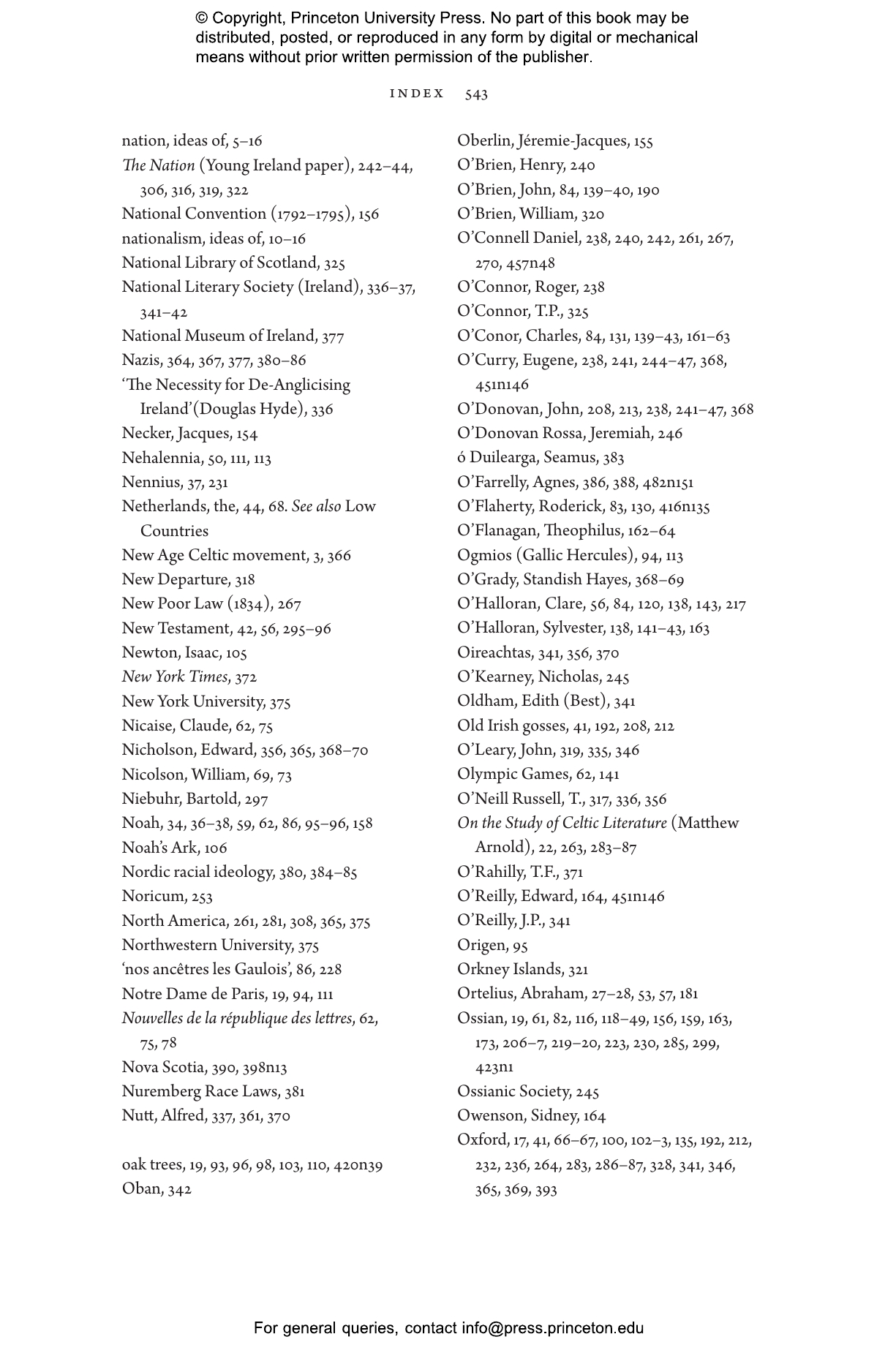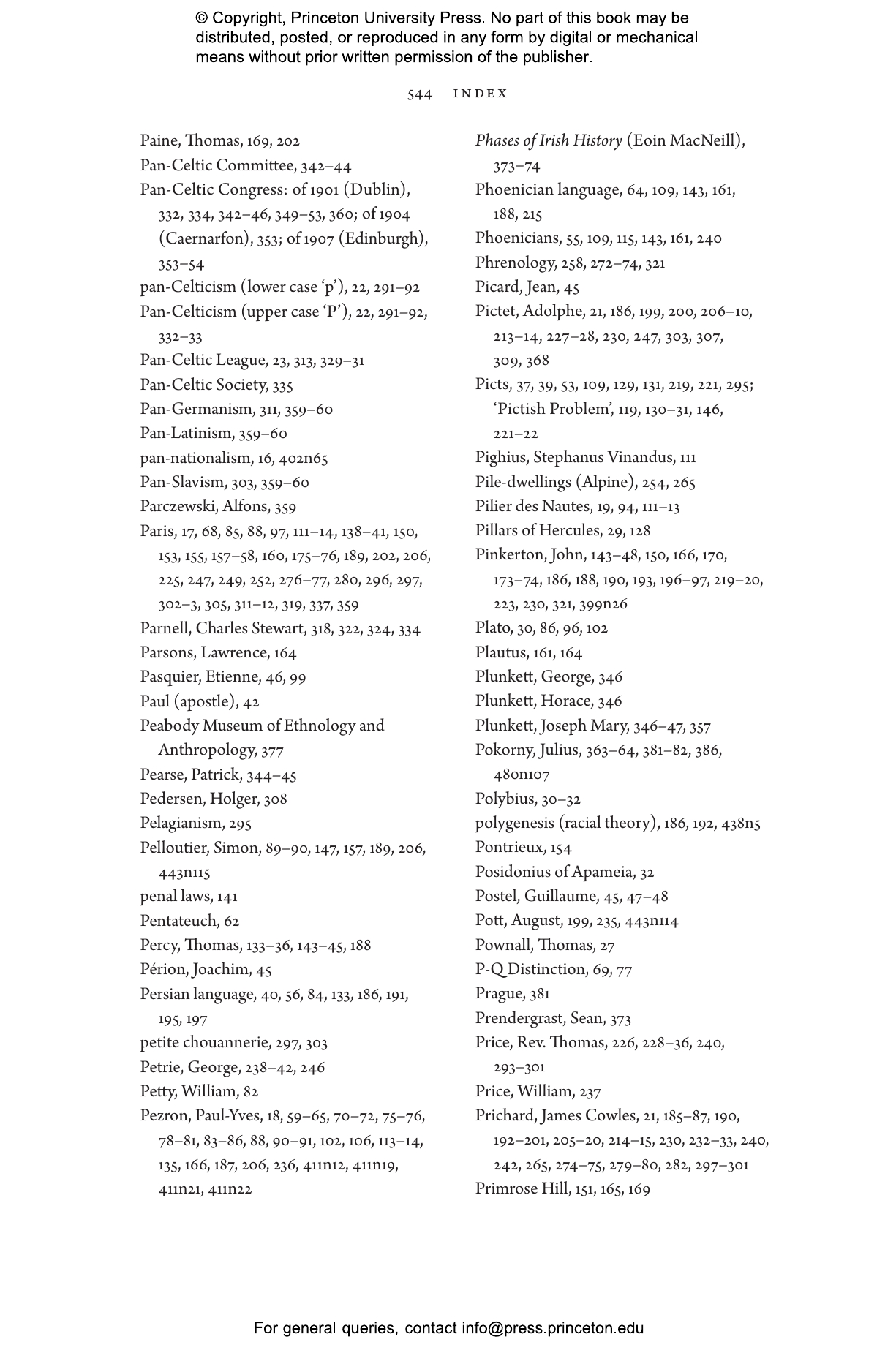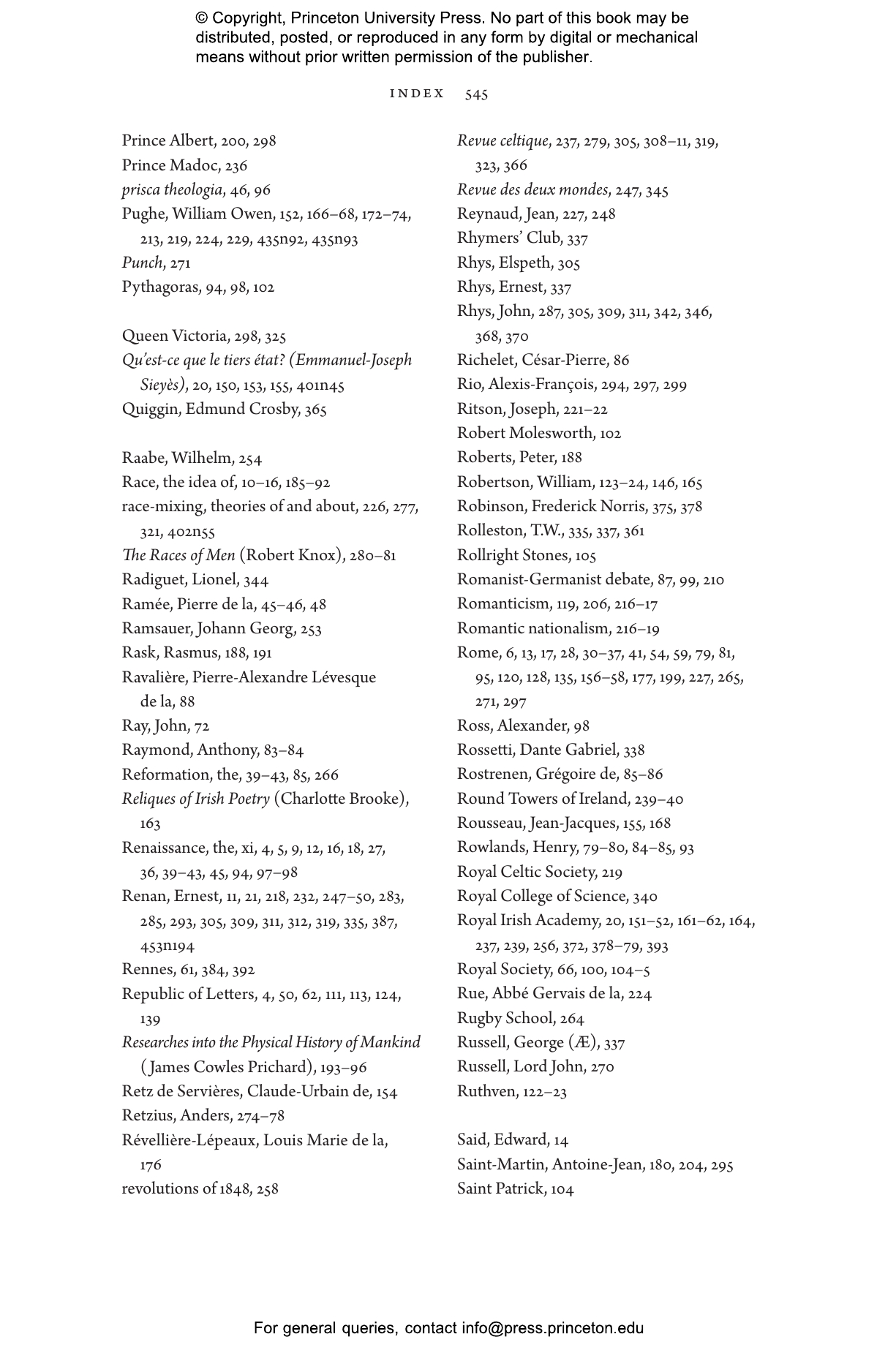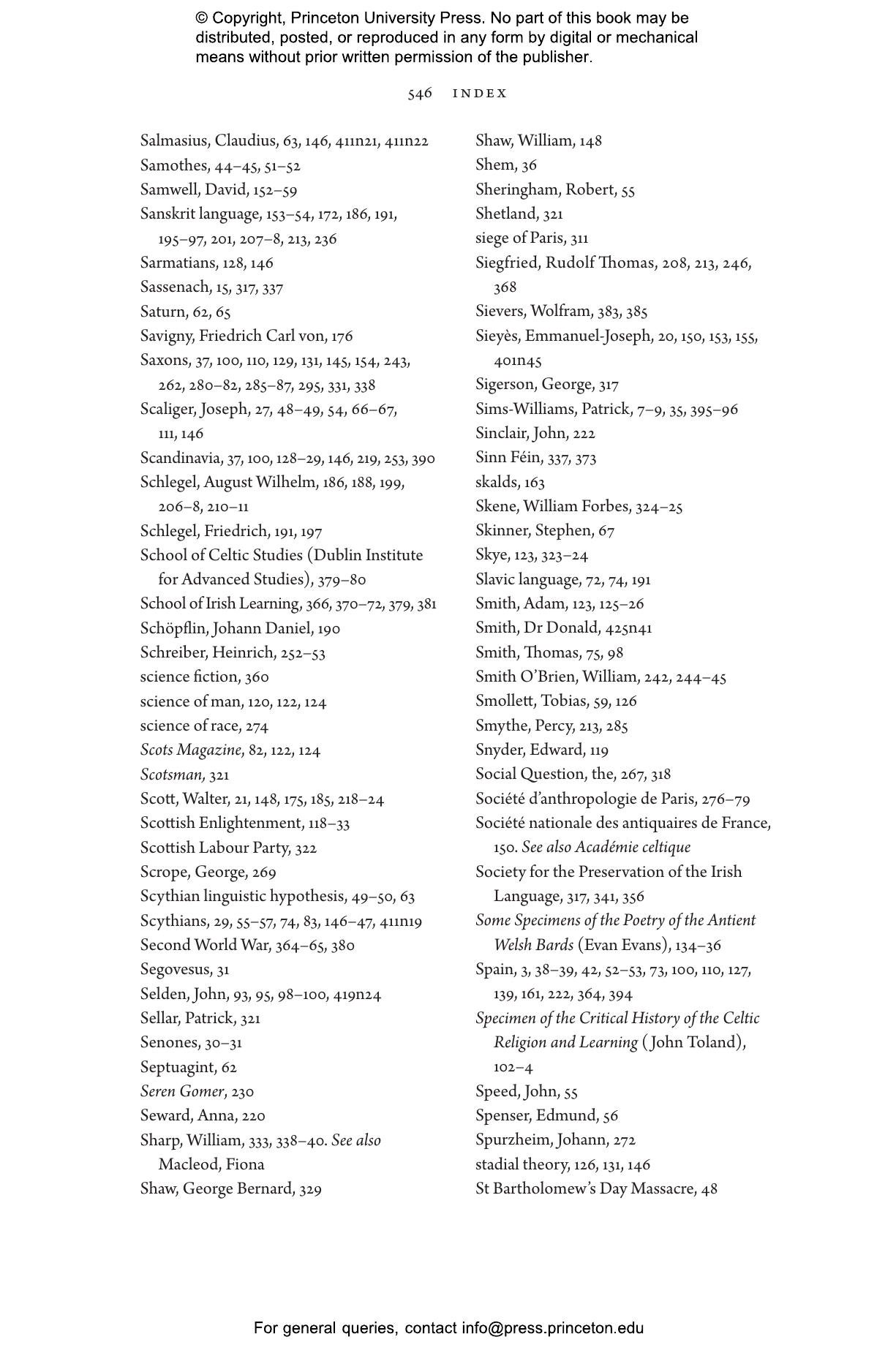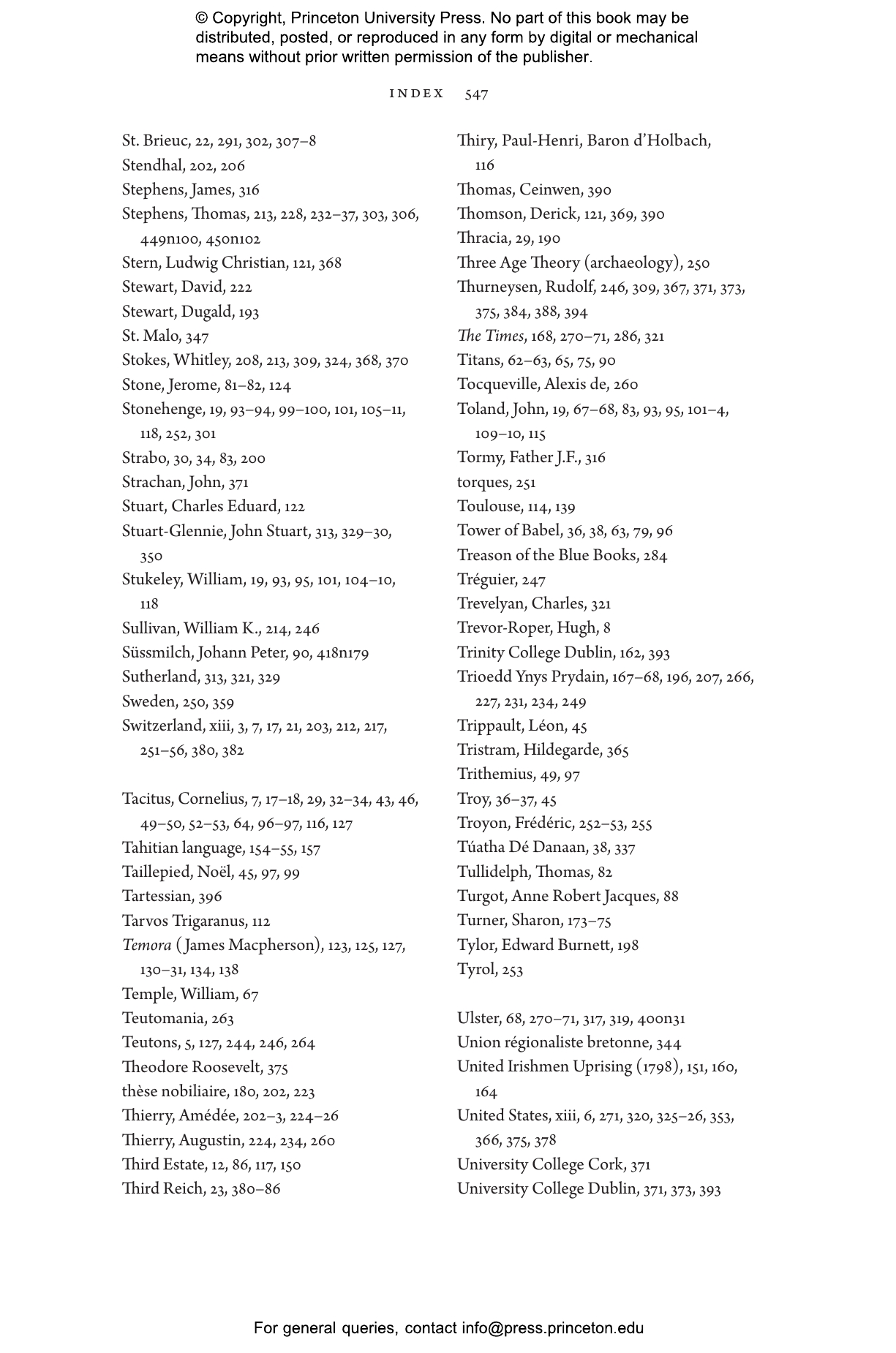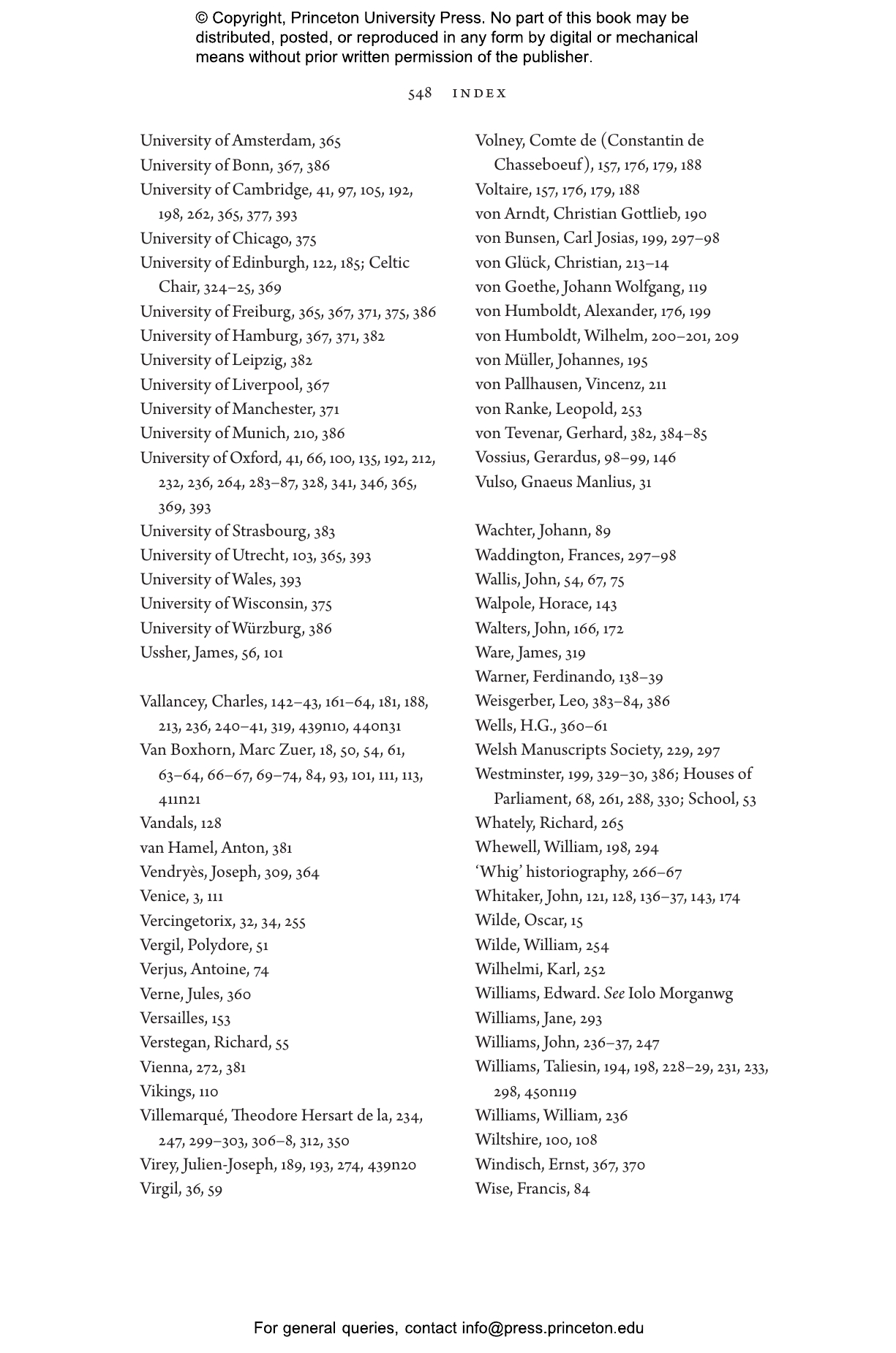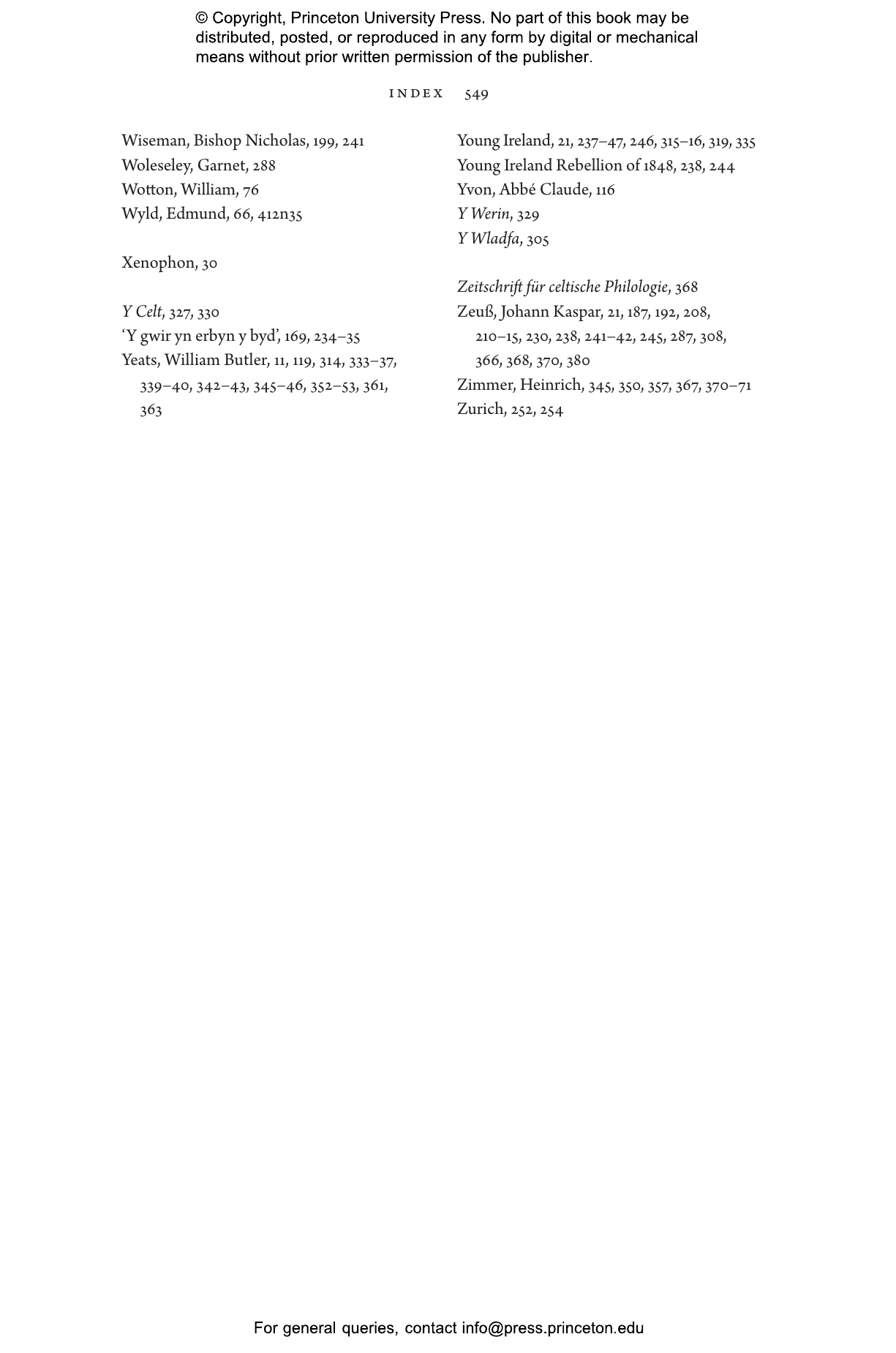Before the Greeks and Romans, the Celts ruled the ancient world. They sacked Rome, invaded Greece, and conquered much of Europe, from Ireland to Turkey. Celts registered deeply on the classical imagination for a thousand years and were variously described by writers like Caesar and Livy as unruly barbarians, fearless warriors, and gracious hosts. But then, in the early Middle Ages, they vanished. In The Celts, Ian Stewart tells the story of their rediscovery during the Renaissance and their transformation over the next few centuries into one of the most popular European ancestral peoples.
The Celts shows how the idea of this ancient people was recovered by scholars, honed by intellectuals, politicians, and other thinkers of various stripes, and adopted by cultural revivalists and activists as they tried to build European nations and nationalisms during the eighteenth and nineteenth centuries. Long-forgotten, the Celts improbably came to be seen as the ancestors of most western Europeans—and as a pillar of modern national identity in Britain, Ireland, and France.
Based on new research conducted across Europe and in the United States, The Celts reveals when and how we came to call much of Europe “Celtic,” why this idea mattered in the past, and why it still matters today, as the tide of nationalism is once again on the rise.
Ian Stewart is an intellectual and cultural historian of modern Europe and a Research Fellow at the University of Edinburgh’s Institute for Advanced Studies in the Humanities.
“Ian Stewart’s history of the idea of Celticism since the eighteenth century is imaginative, erudite, original, and continually surprising. Under his sympathetic but forensic interrogation, few Celt-related assumptions about ancestral identities, archaeology, linguistic patterns, nationalism, and racial theory emerge unaltered. Among much else, he reinterprets the histories of European high culture and the ‘Irish Question,’ rescues forgotten theorists such as E. E. Fournier d’Albe and cultural enterprises like fin de siècle pan-Celtcisim, and pursues the implications of this resilient but ambiguous concept for us today. A tour de force of scholarship and intellectual verve.”—Roy Foster, University of Oxford
“Stewart’s powerful and engaging book, with its cast of hundreds, reveals how simplified our histories of the Celts have been—and how culturally circumscribed. Packed with fascinating examples and rich in insights, this is a genuinely energizing quest for the Celts through time.”—Mary-Ann Constantine, author of Curious Travellers: Writing the Welsh Tour, 1760–1820
“The Celts is that rare thing—a book that is genuinely pathbreaking. Ian Stewart has written the definitive study of modern European ideas of the Celts—ideas that have been mobilized in the service of a multitude of political, cultural, and intellectual purposes, from nationalism and race theory to pan-Celtic revivalism. No one has attempted anything like this before, and Stewart succeeds triumphantly, offering an illuminating, sometimes disturbing, but always interesting account of a concept that for all its familiarity and significance remains imperfectly understood. Anyone who wants to understand how people and places came to be seen as ‘Celtic’ needs to read this book.”—Paul Readman, author of Storied Ground: Landscape and the Shaping of English National Identity
“An enormously erudite yet accessible account of a shapeshifting concept. Ian Stewart reminds us that Celticism was an international phenomenon and significantly interwoven with major European developments: the Enlightenment, revolution, nationalism, and the ‘science’ of race.”—Colin Kidd, University of St. Andrews


